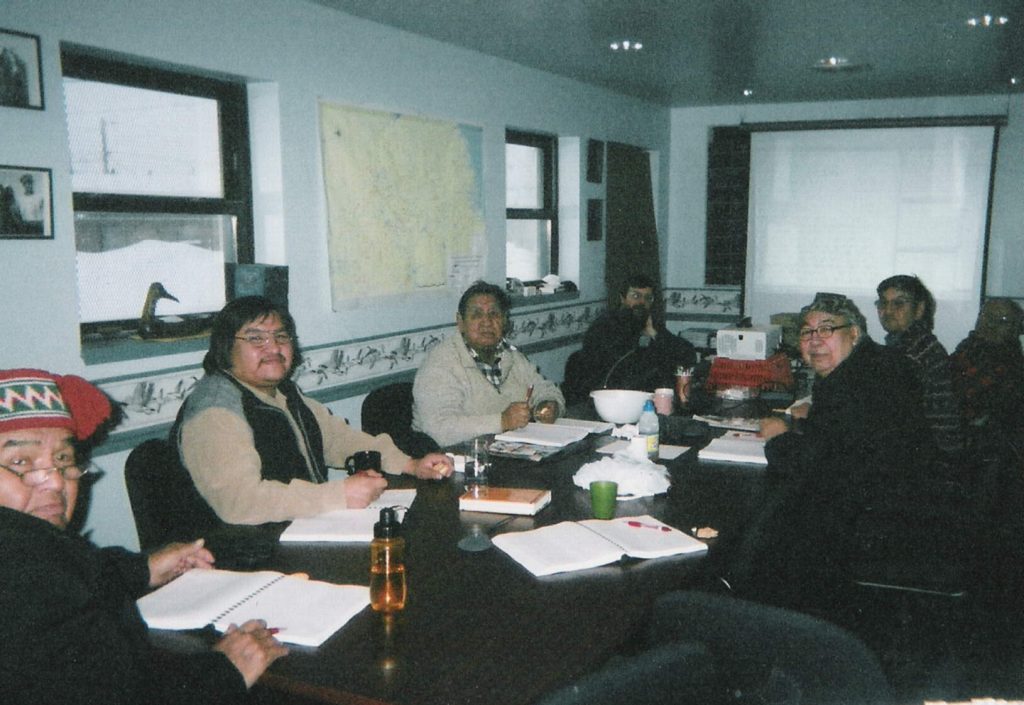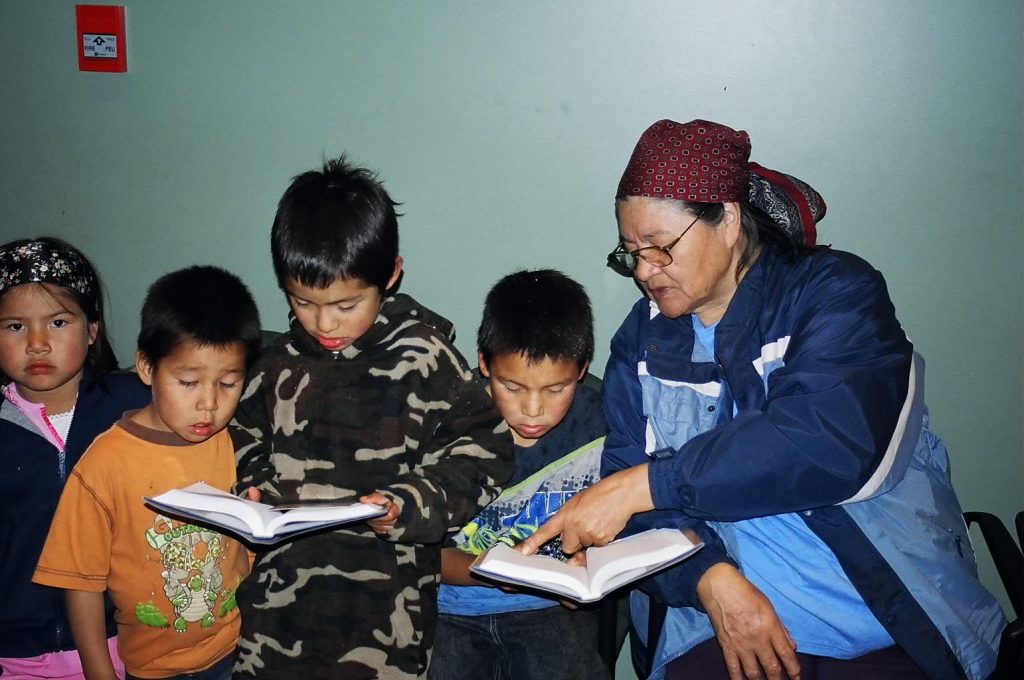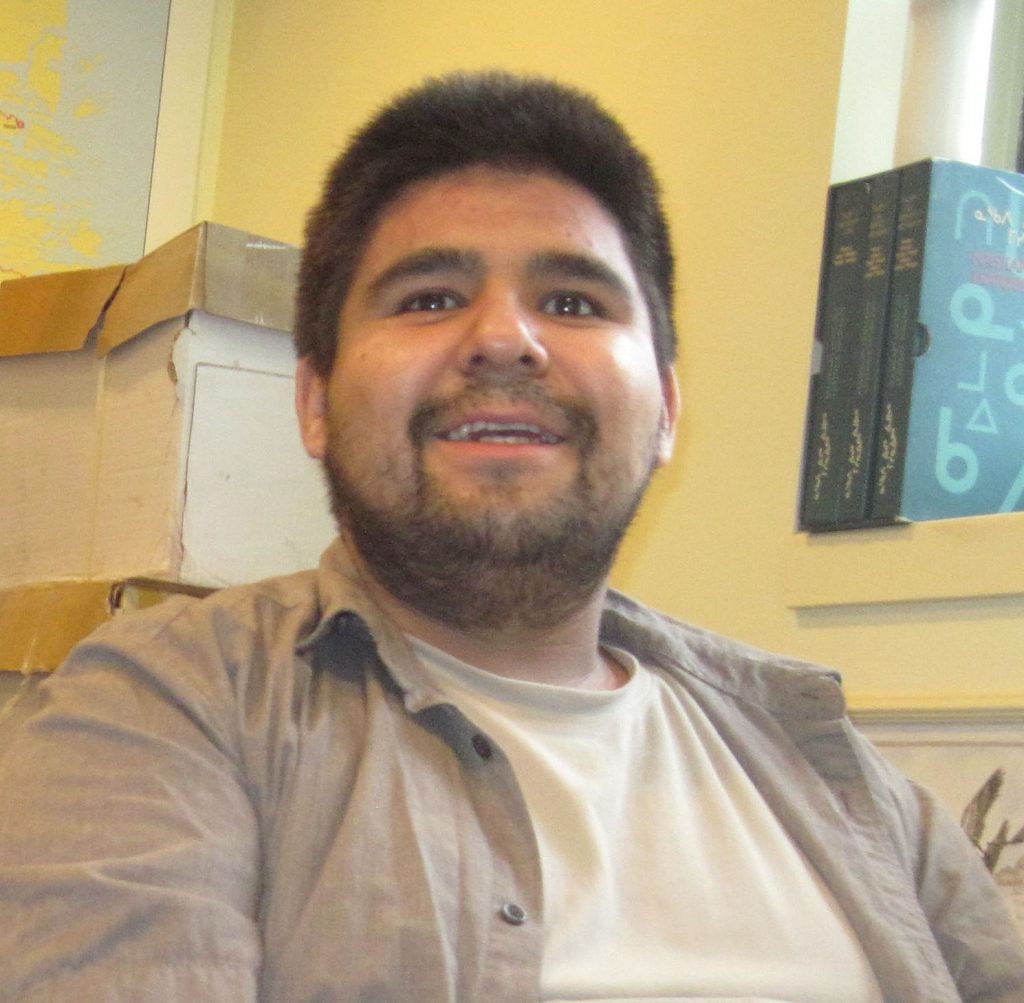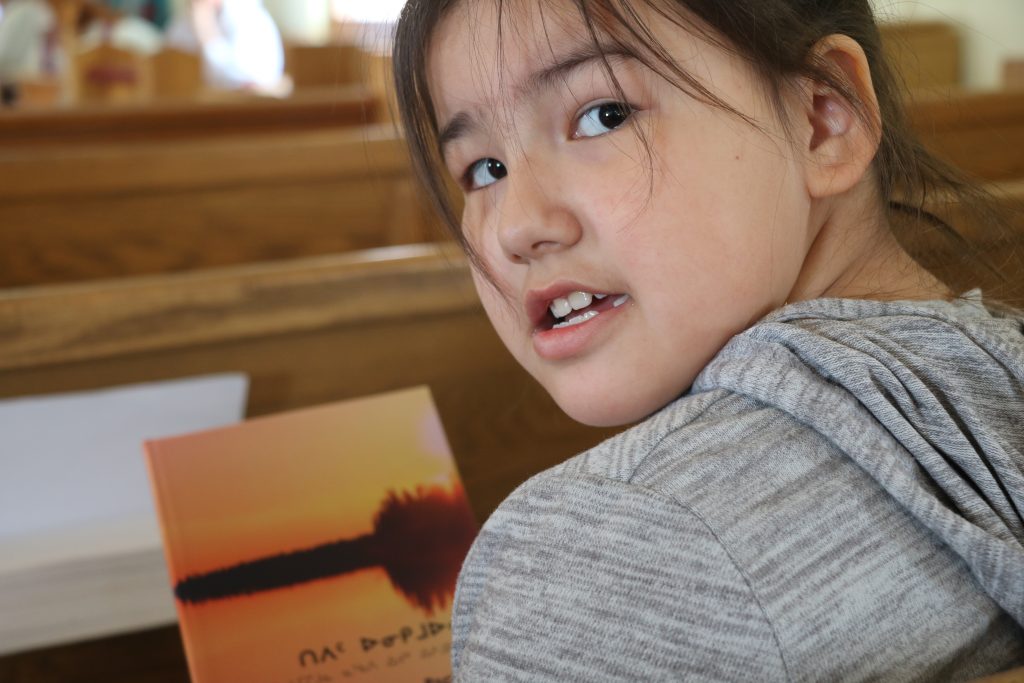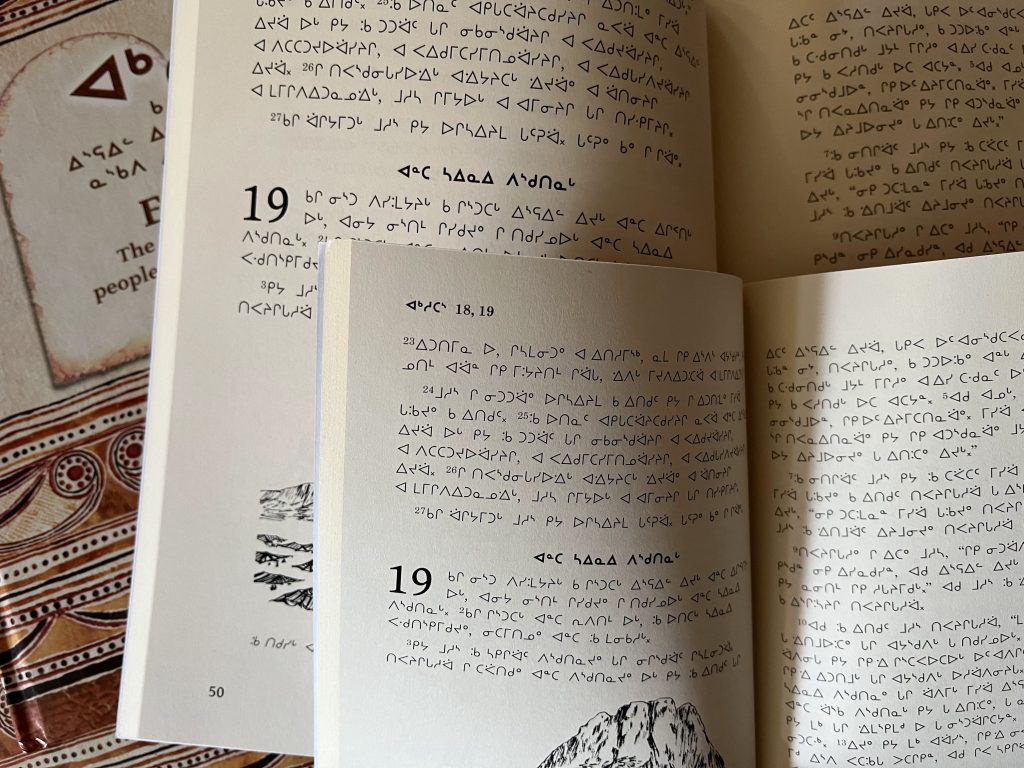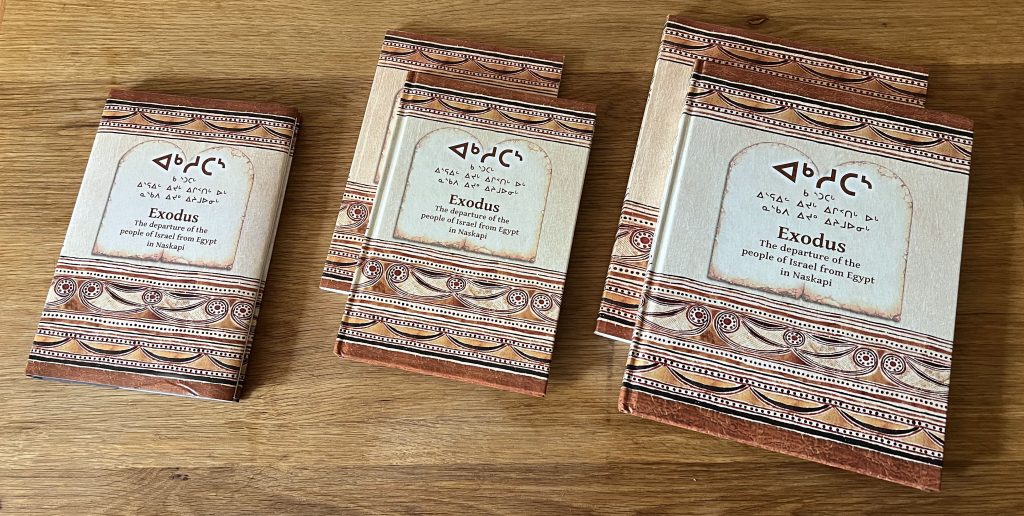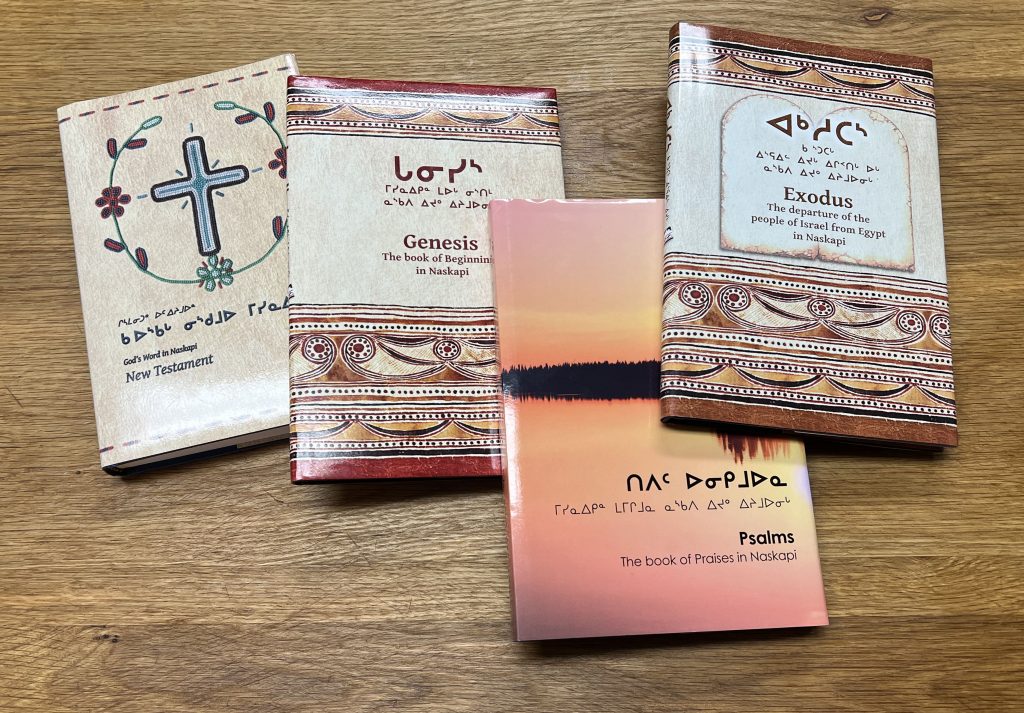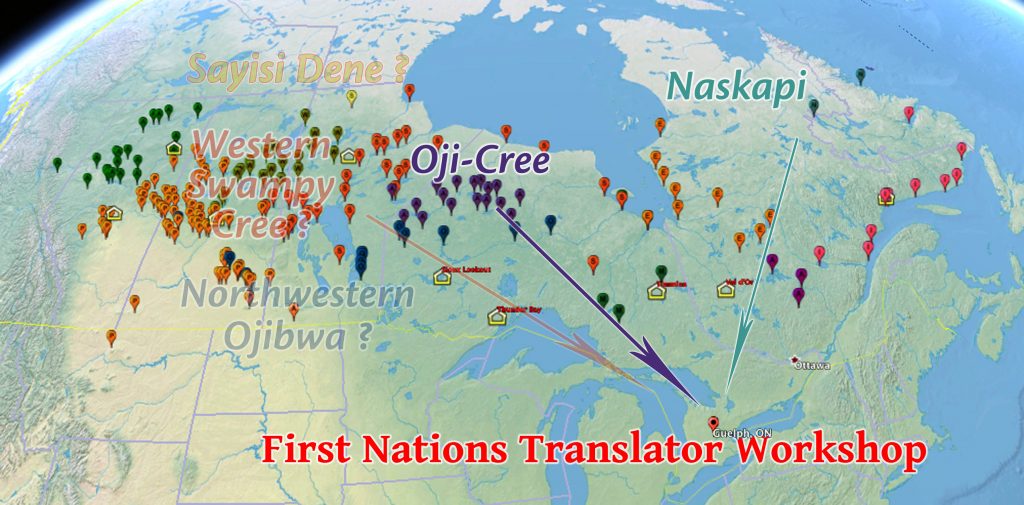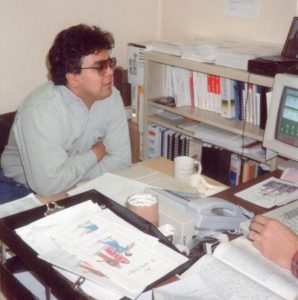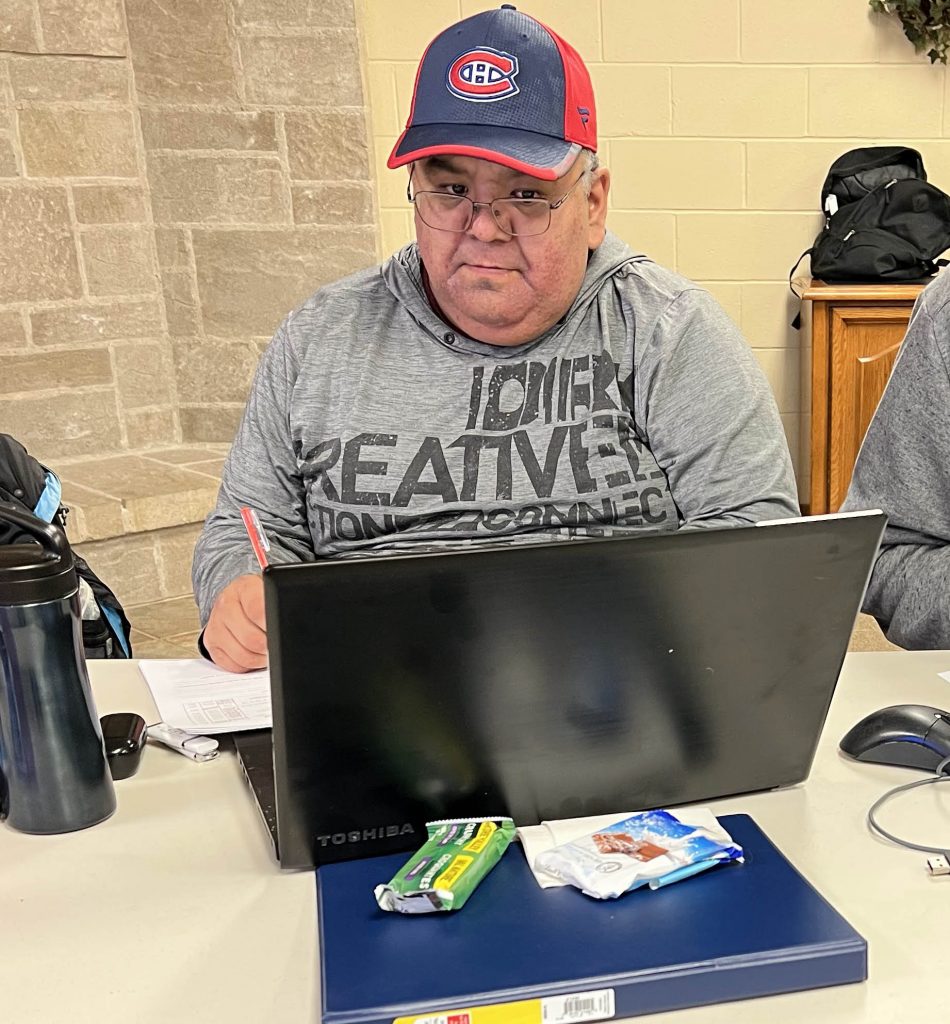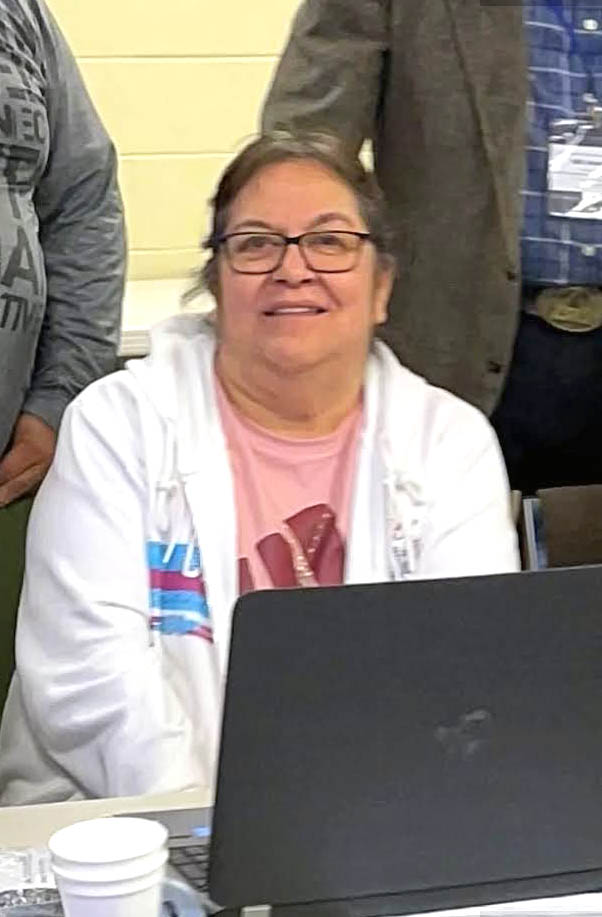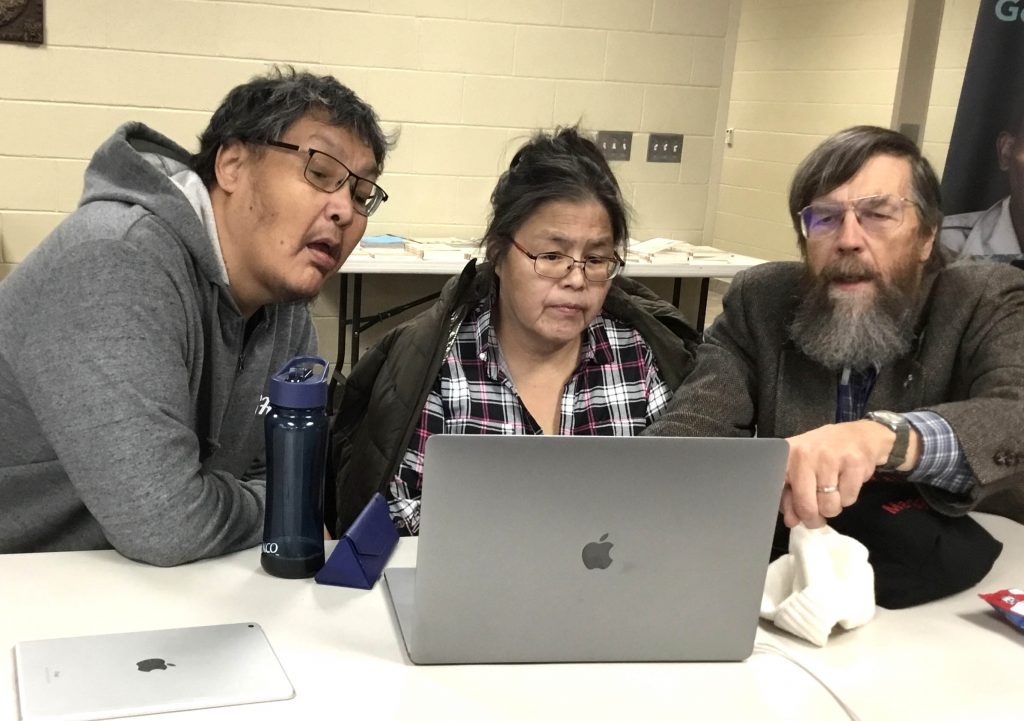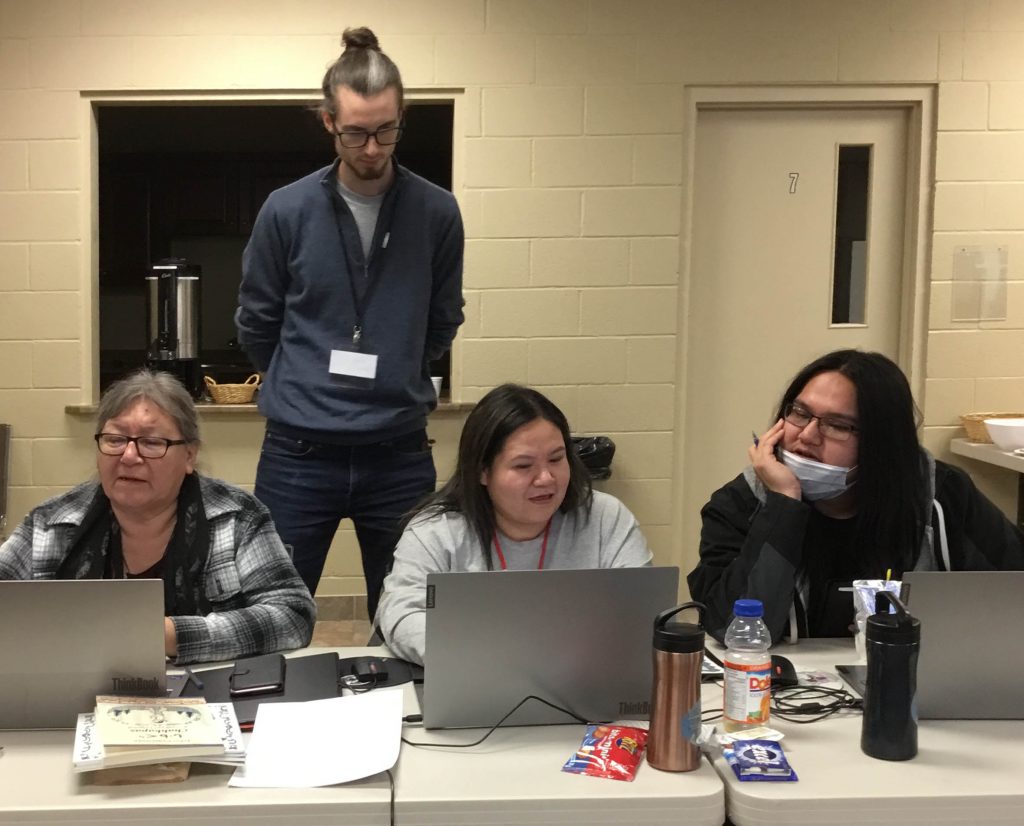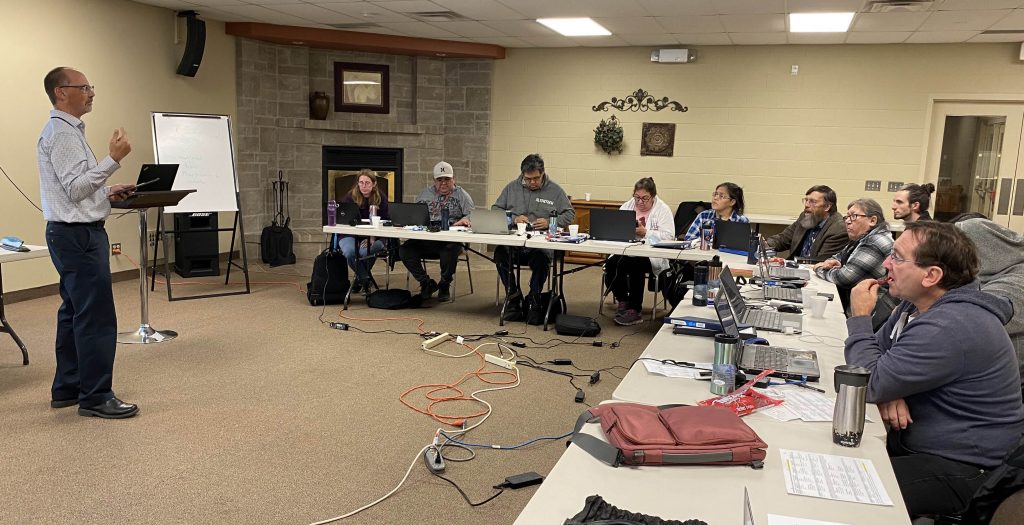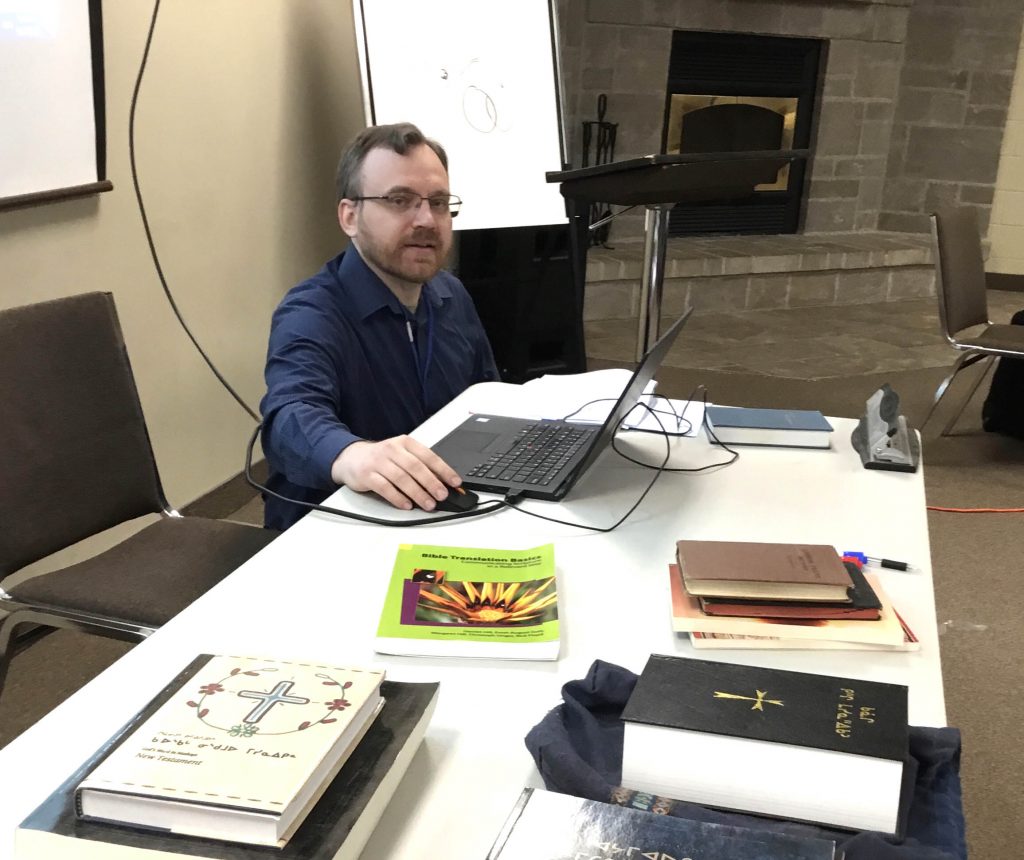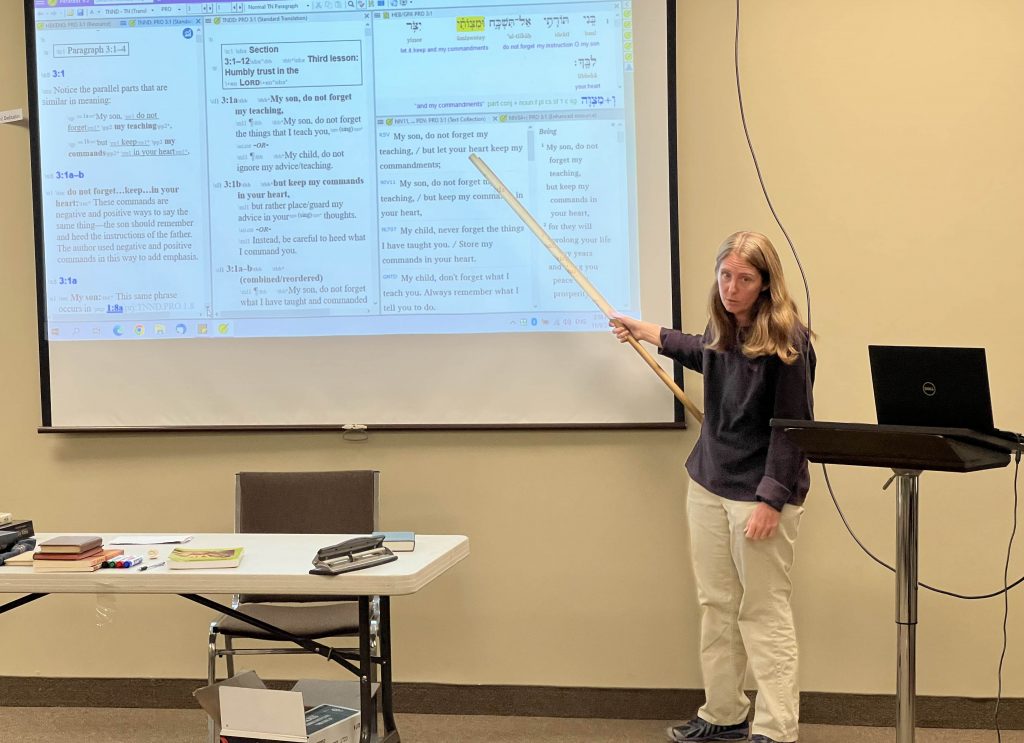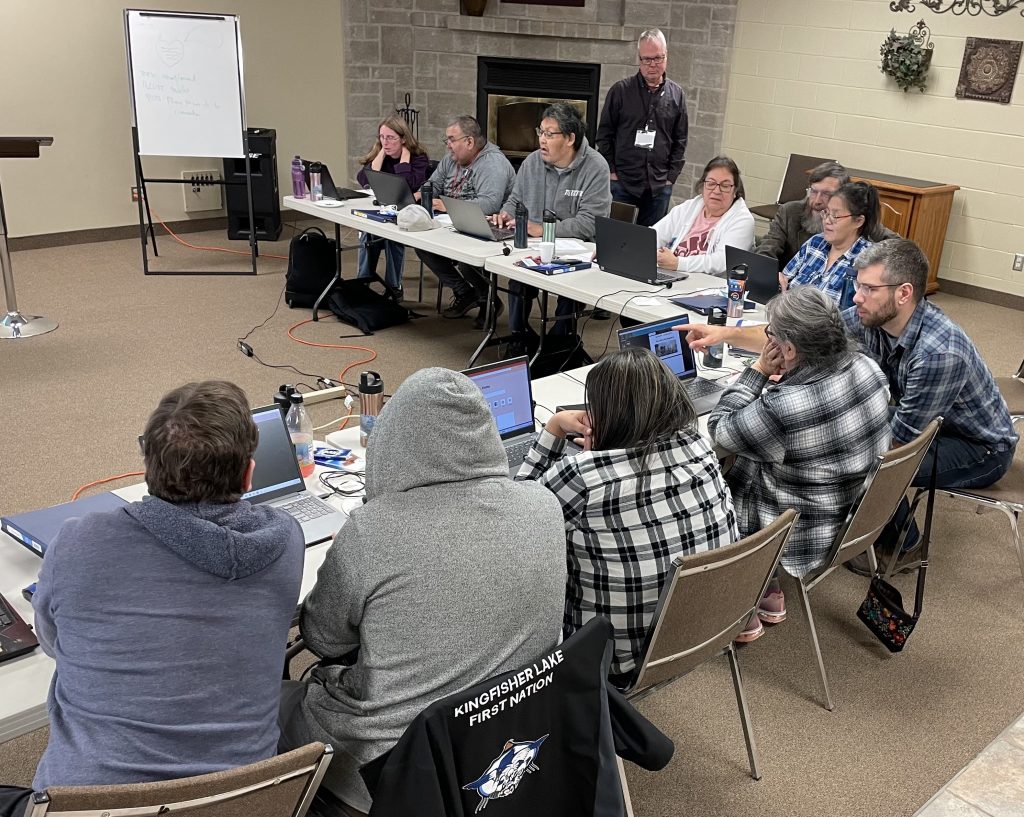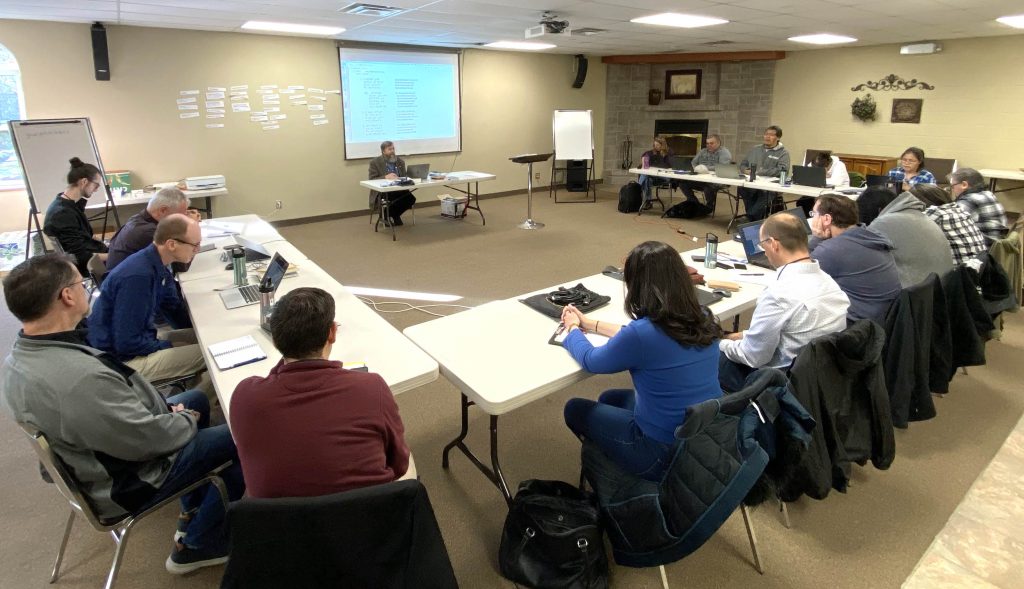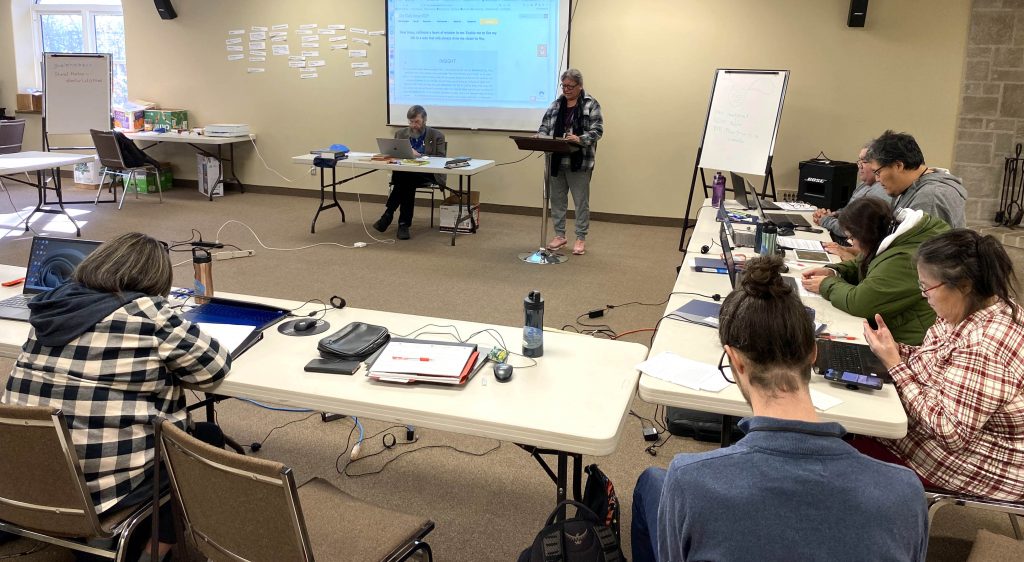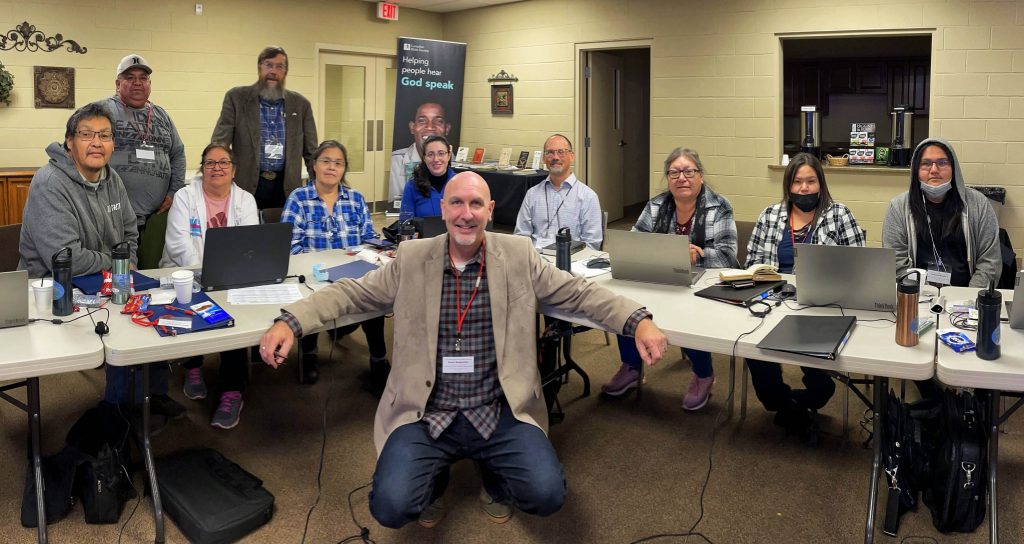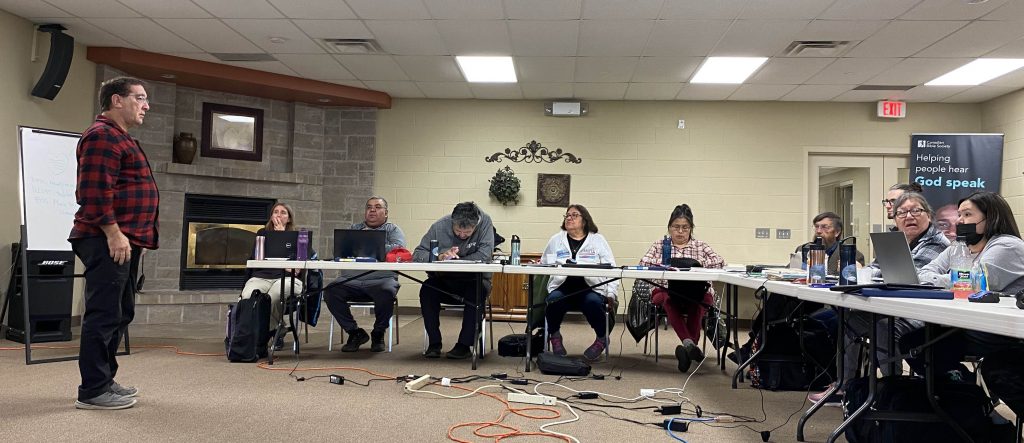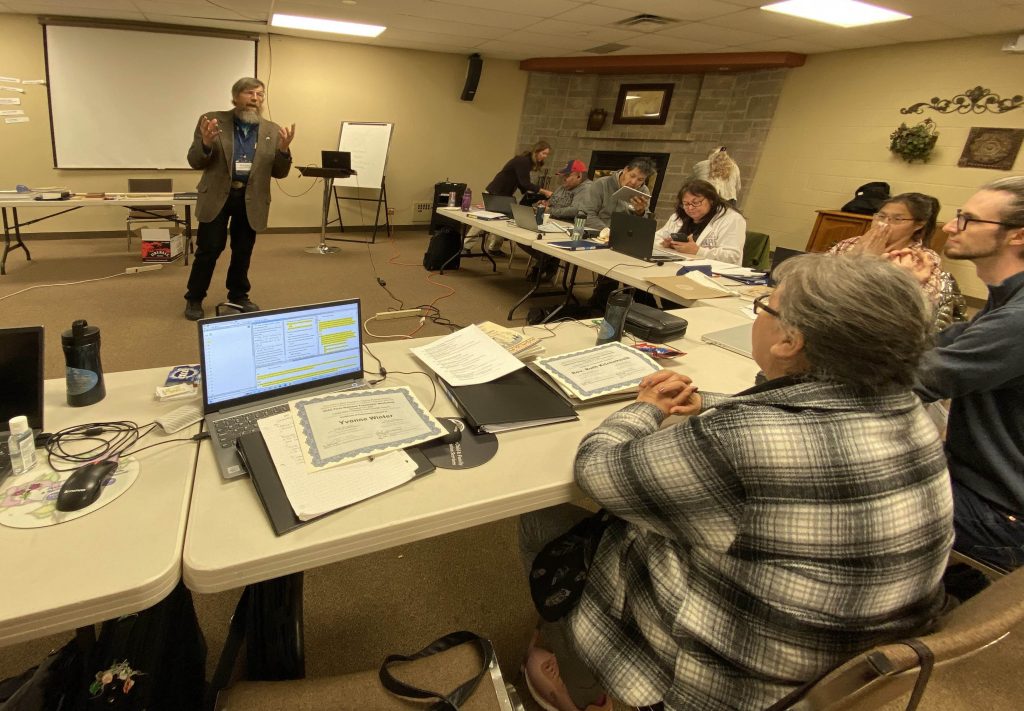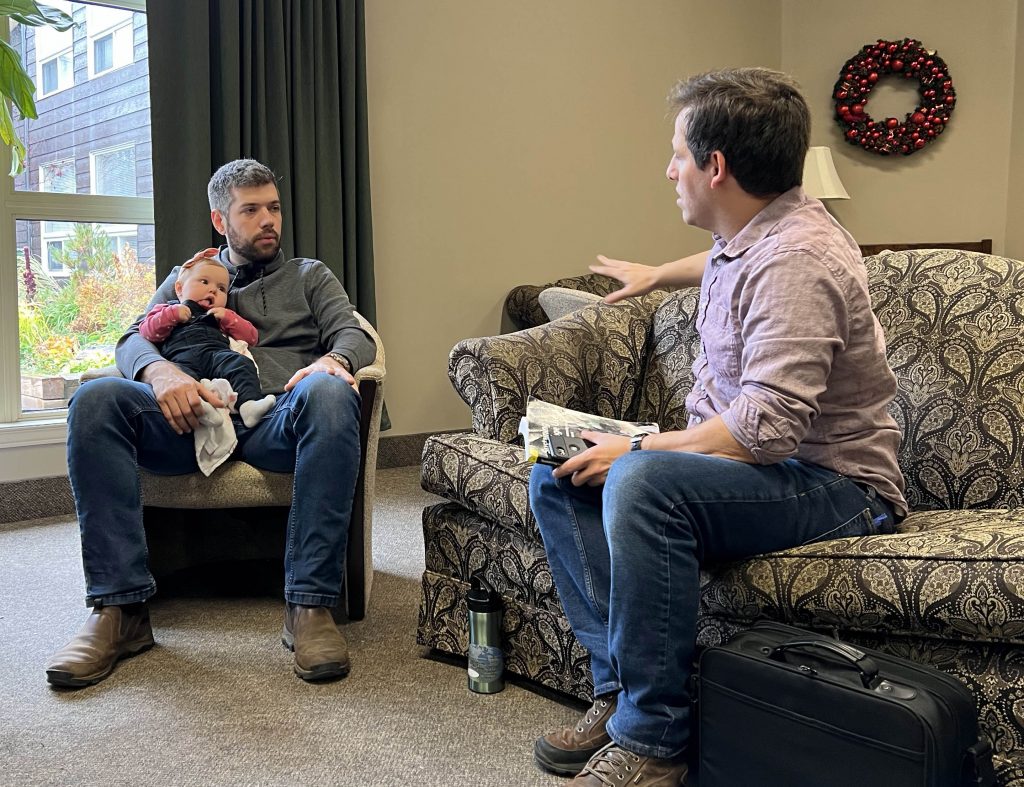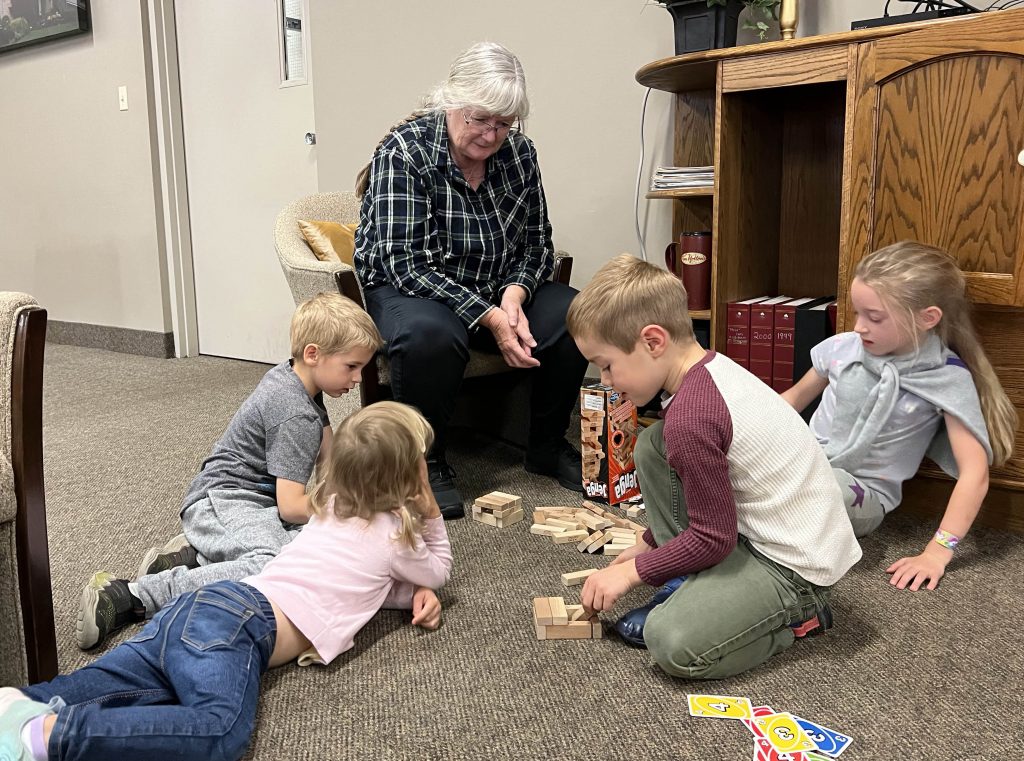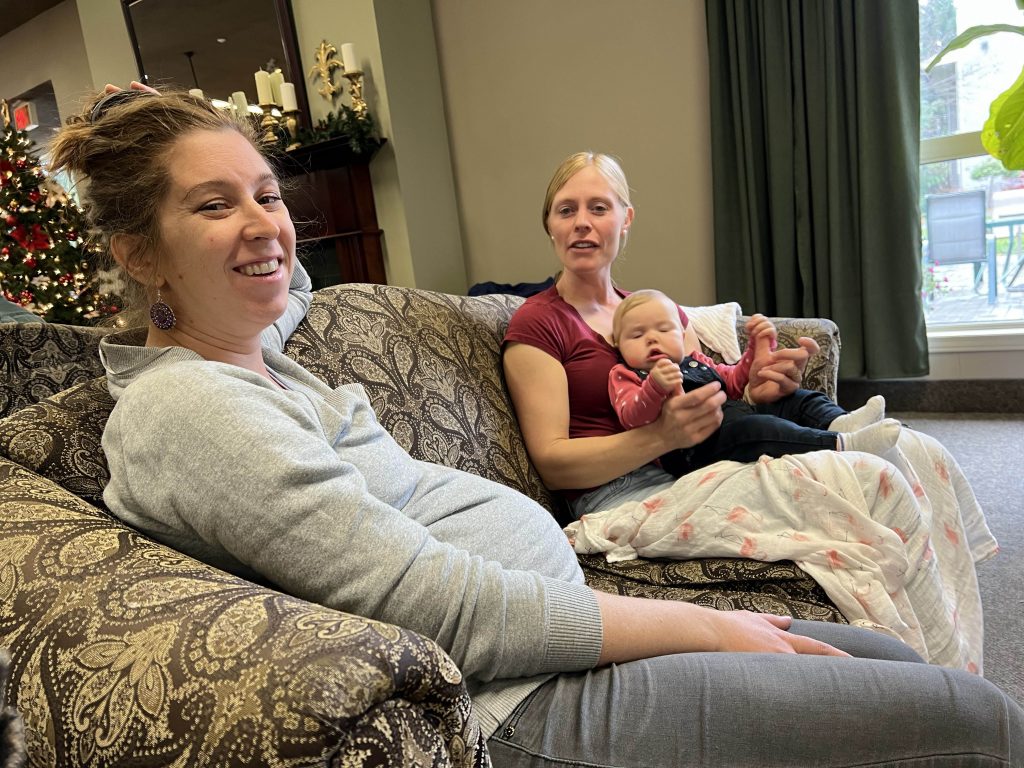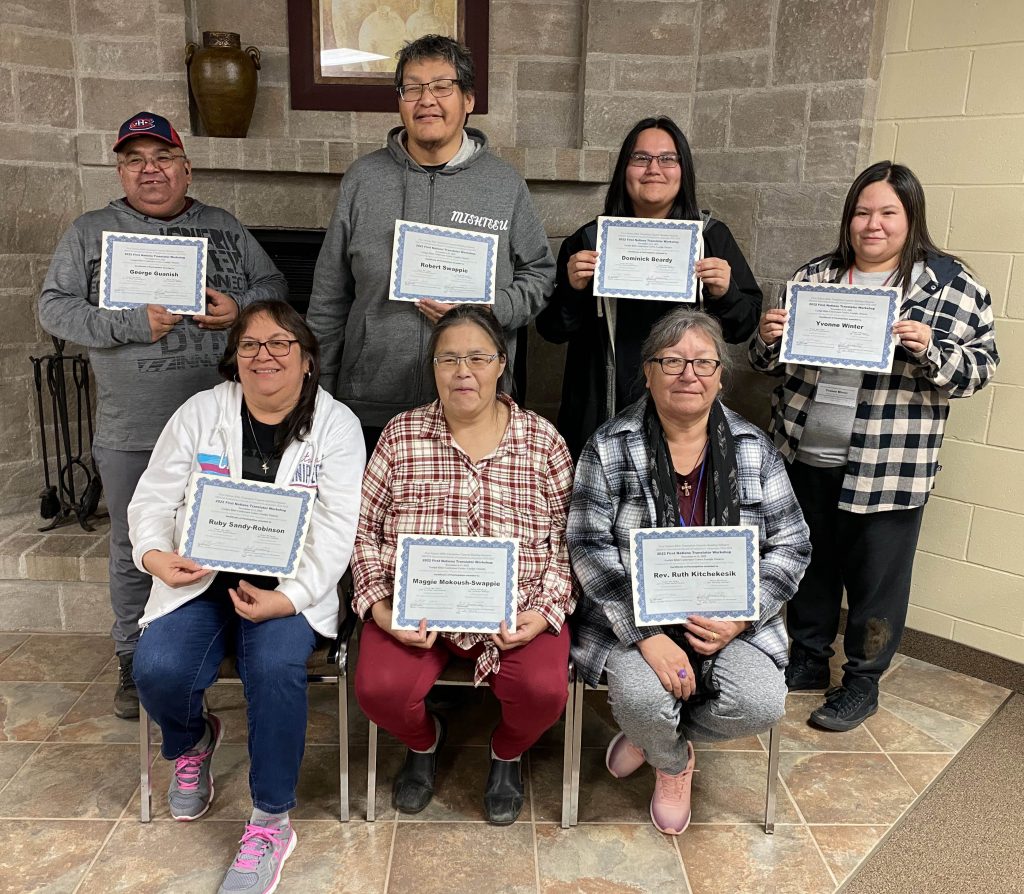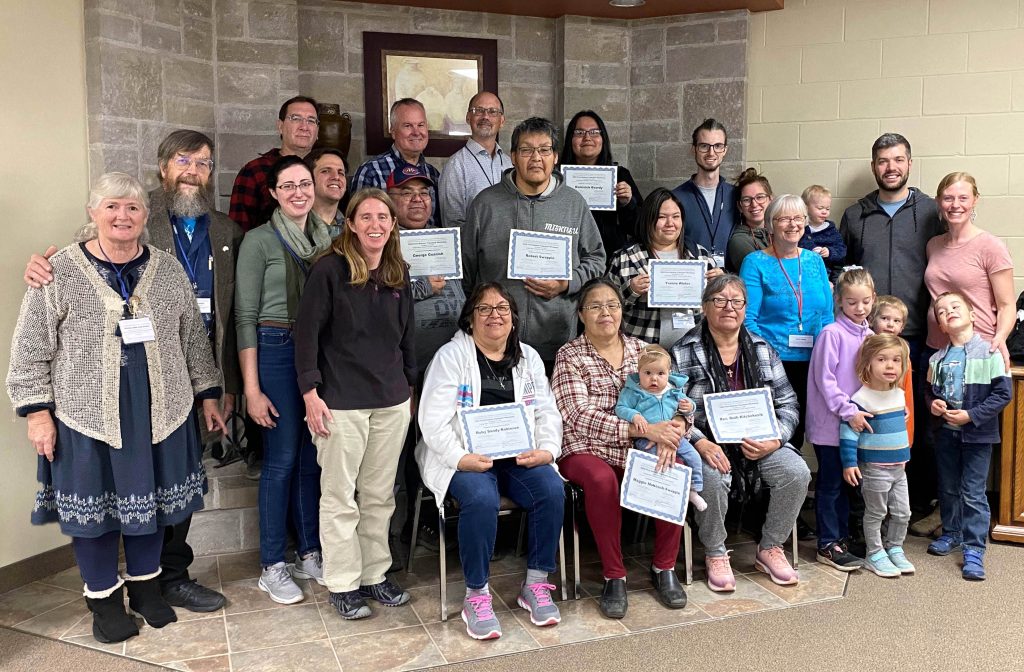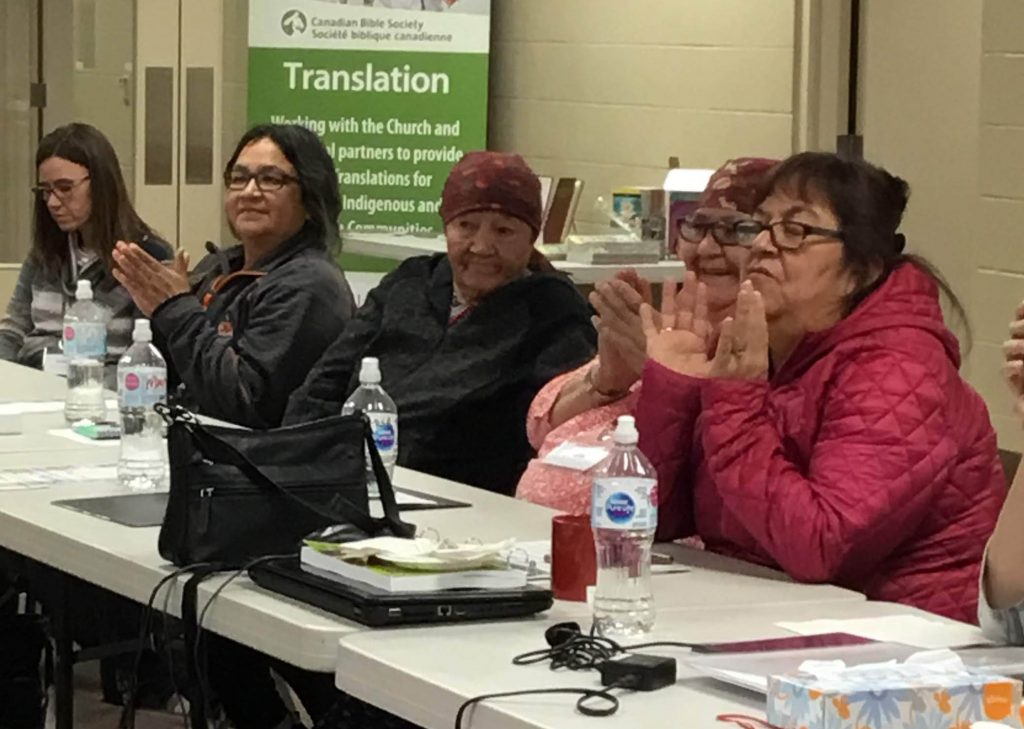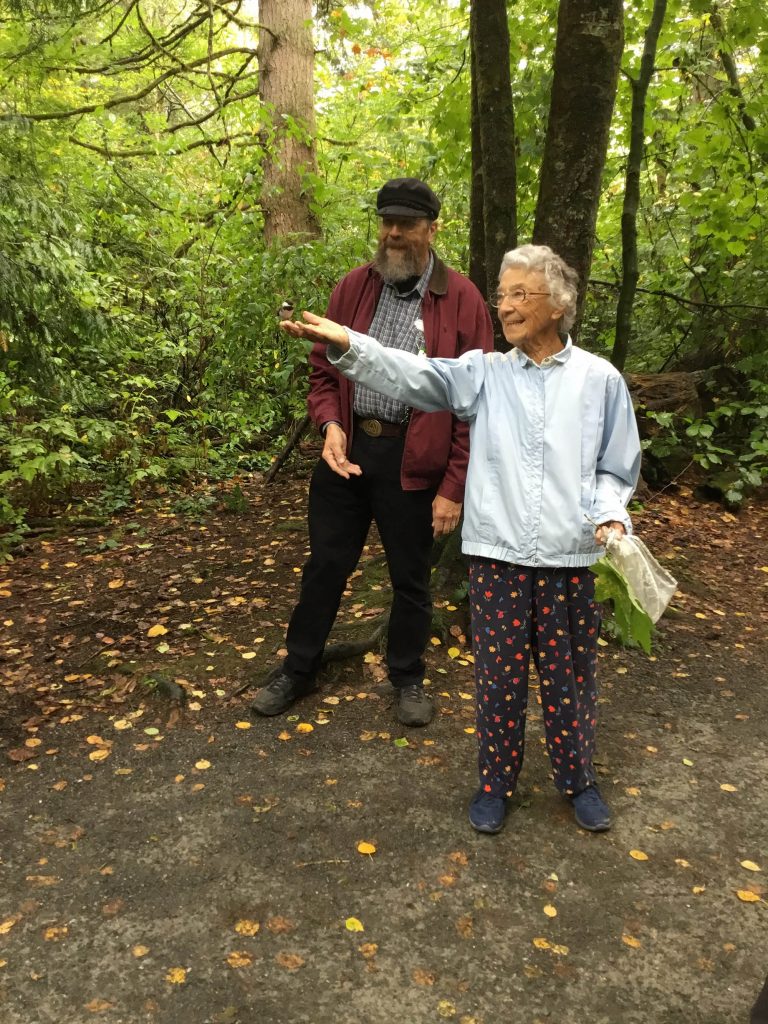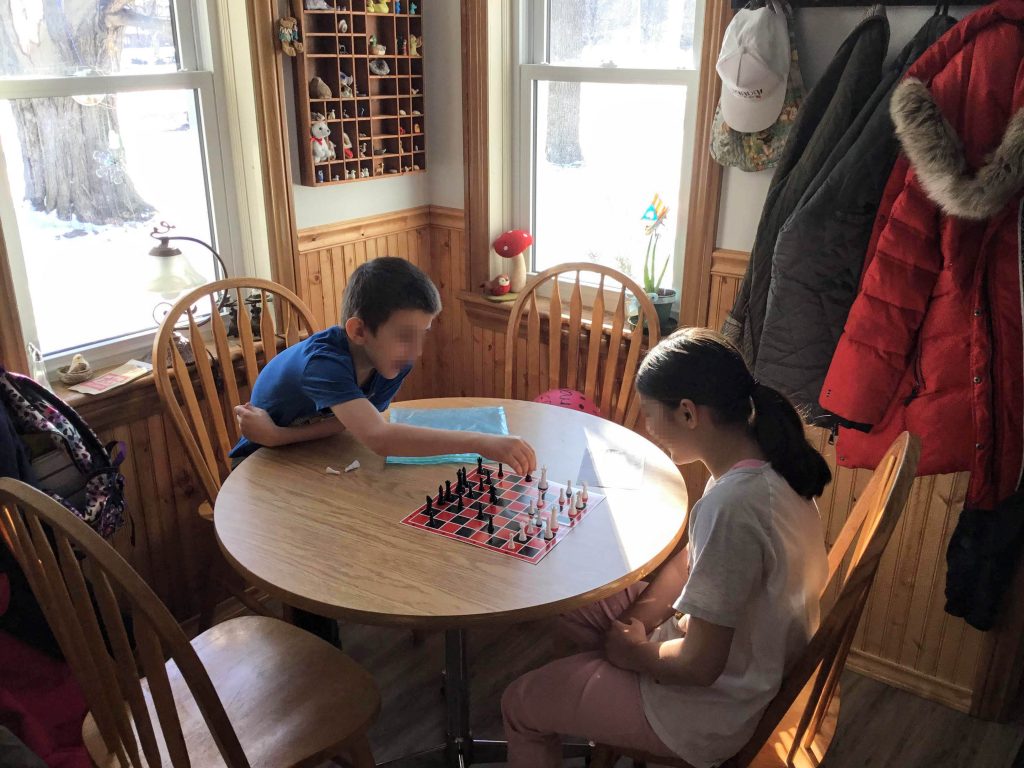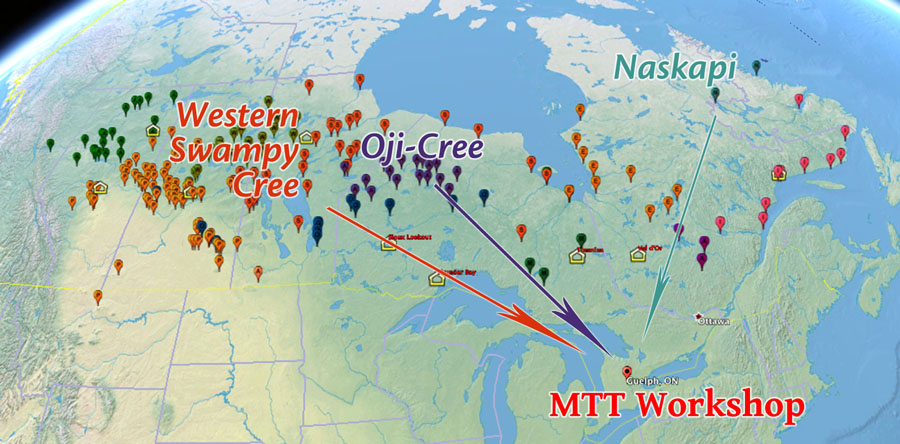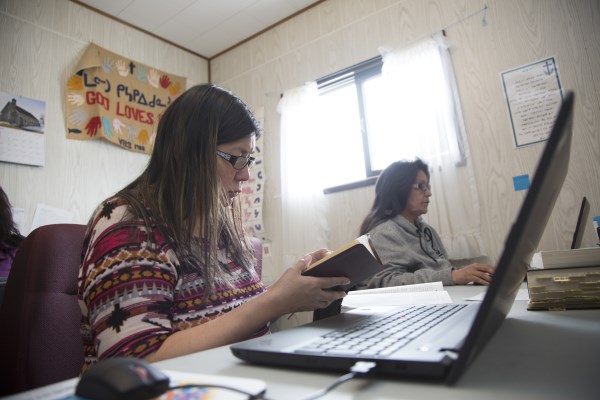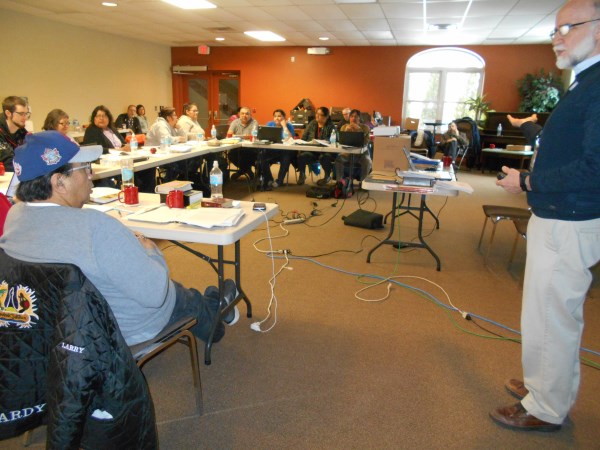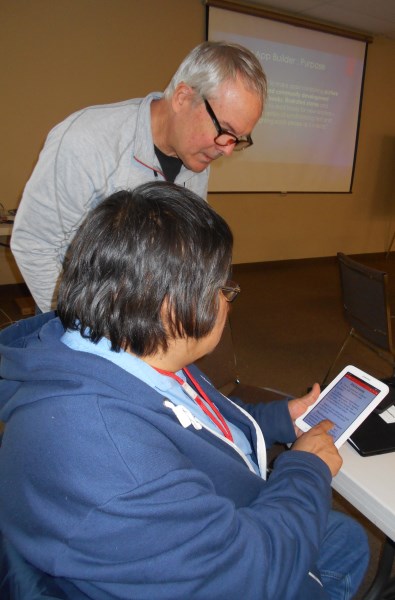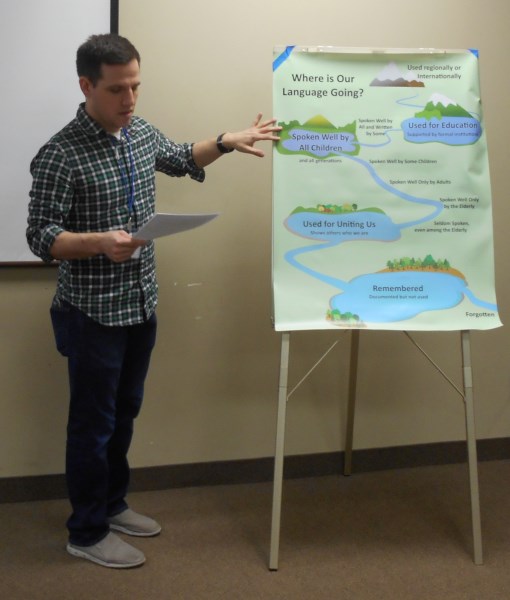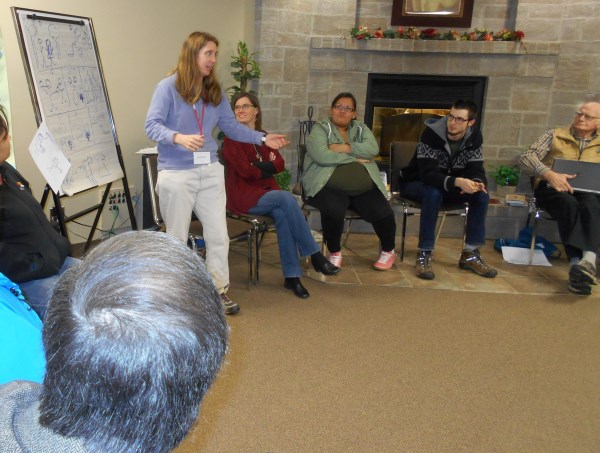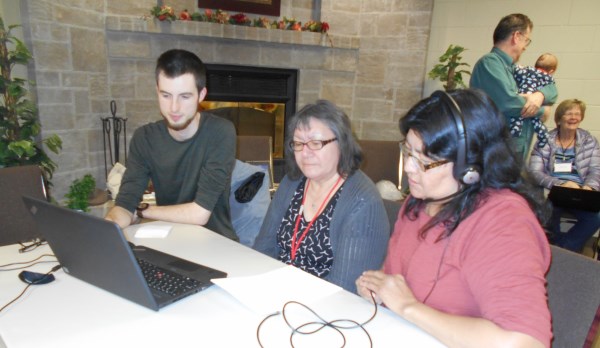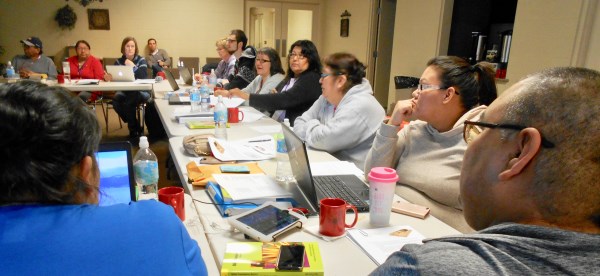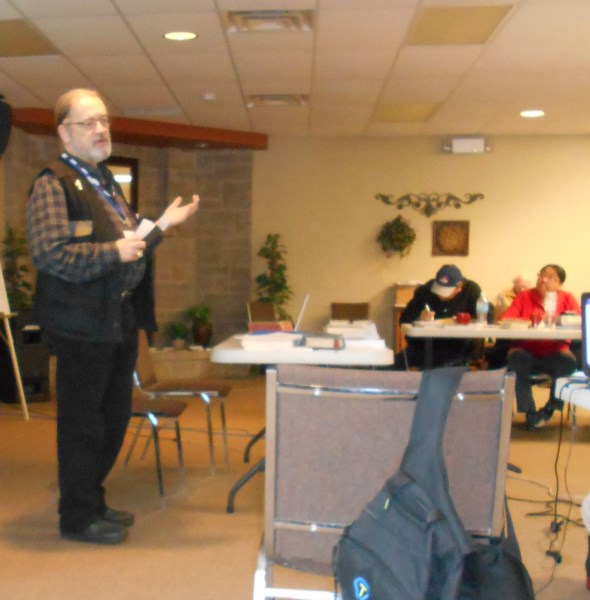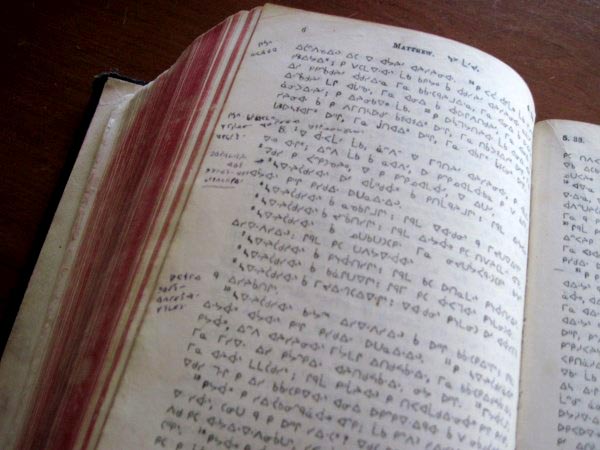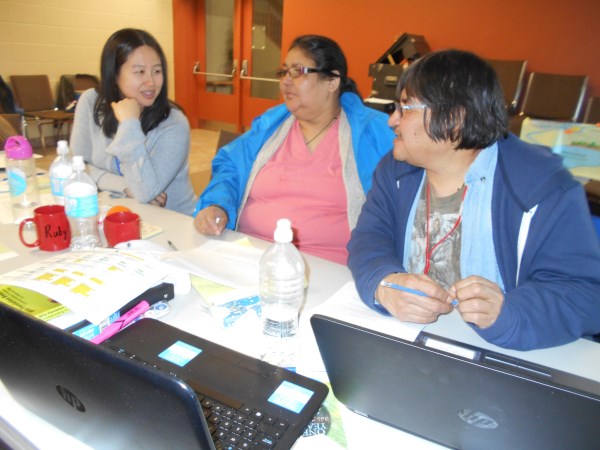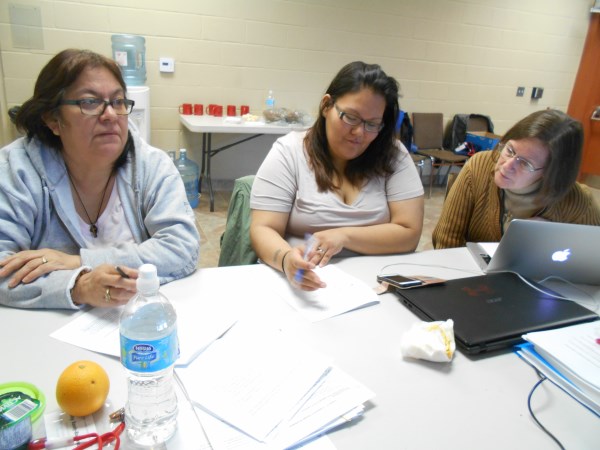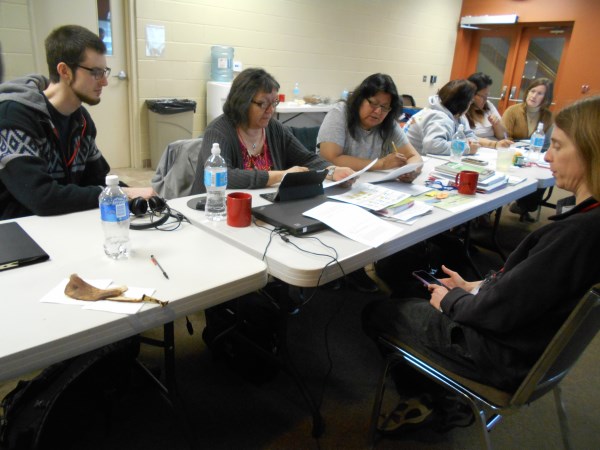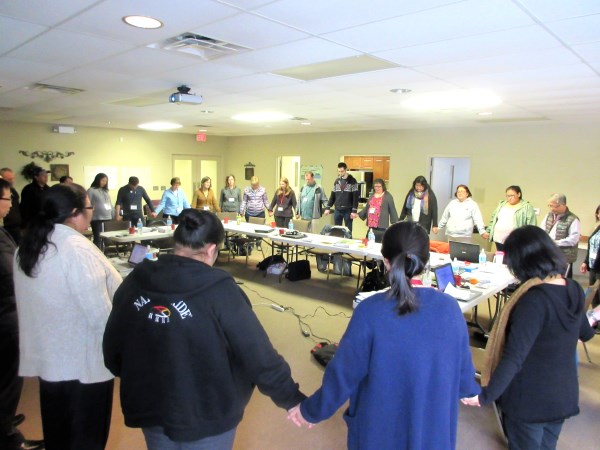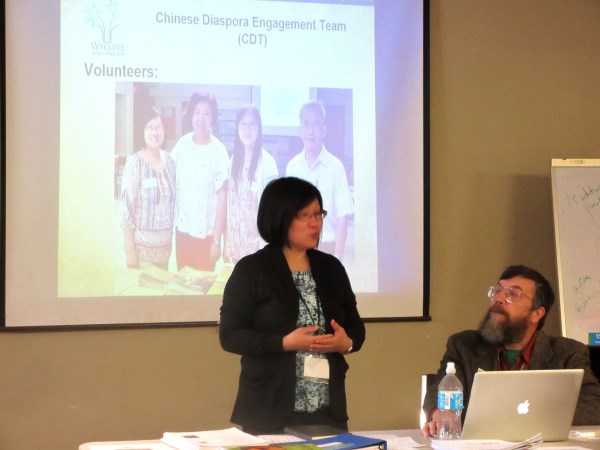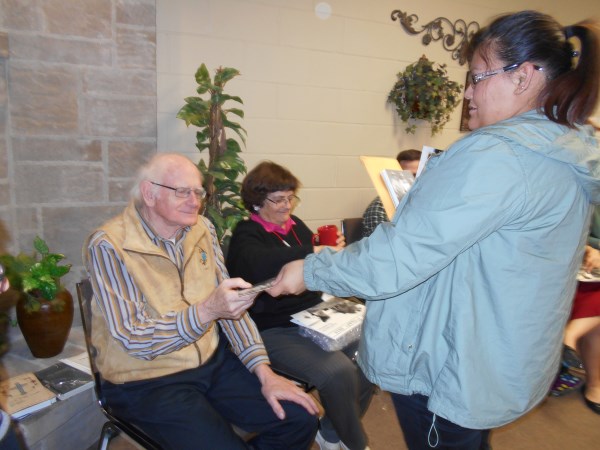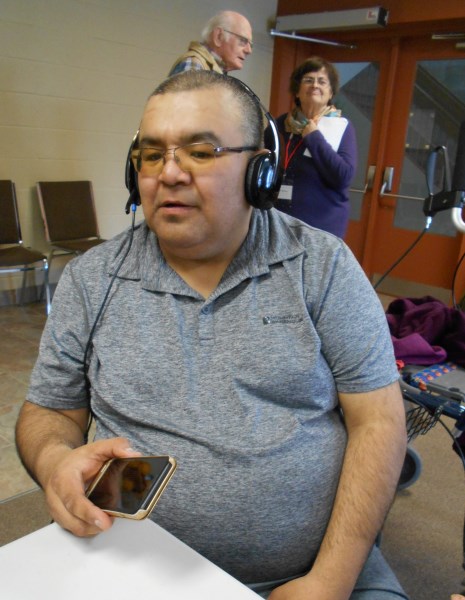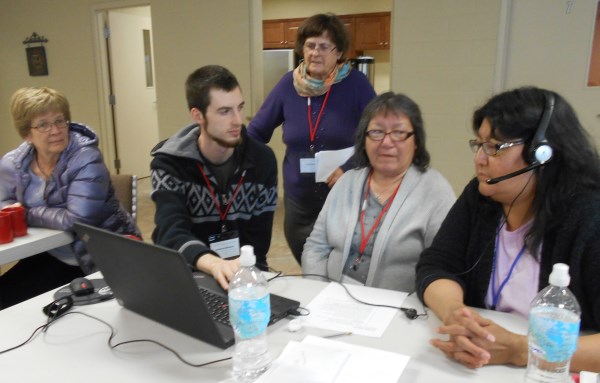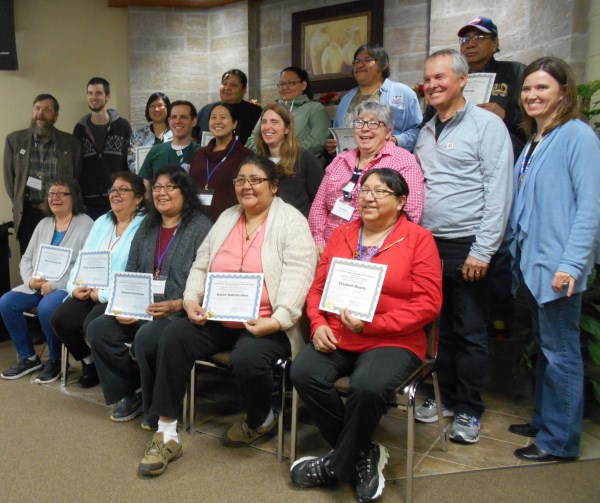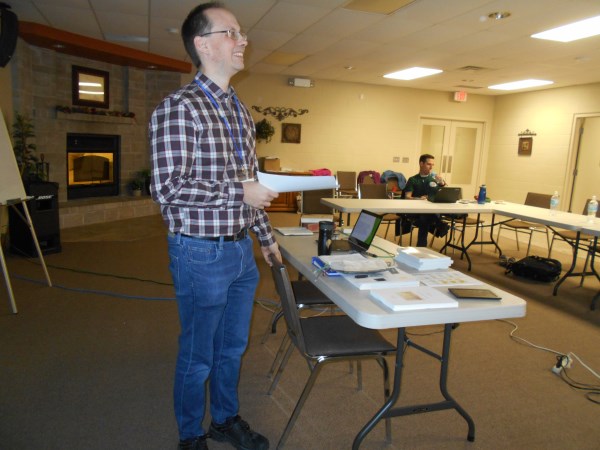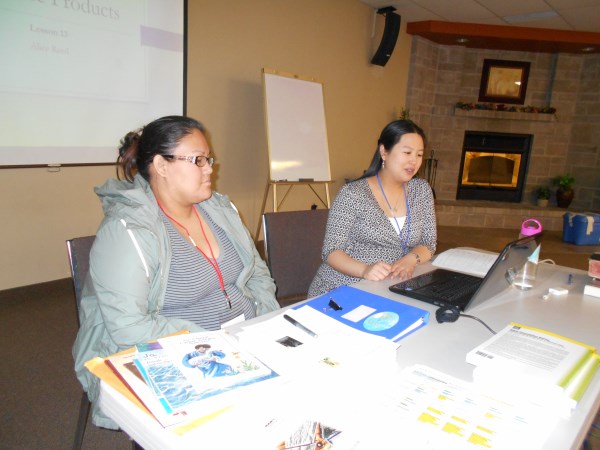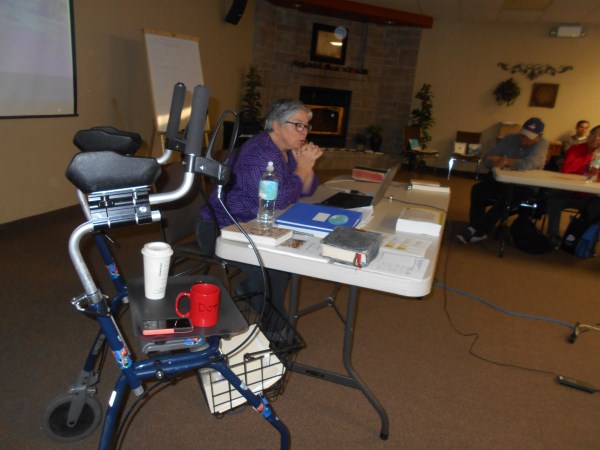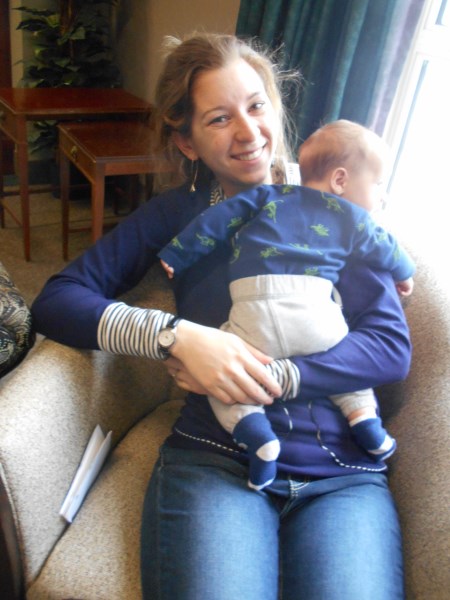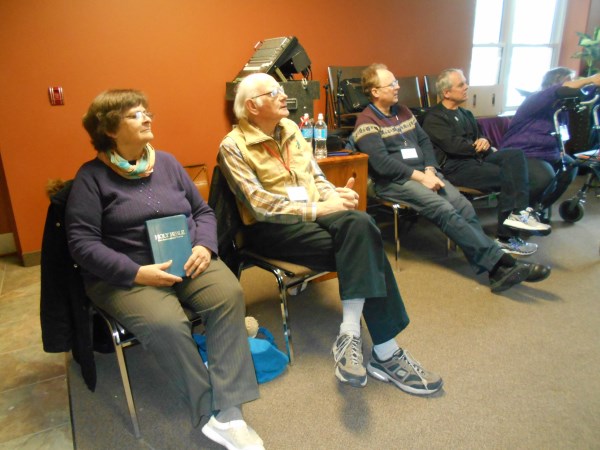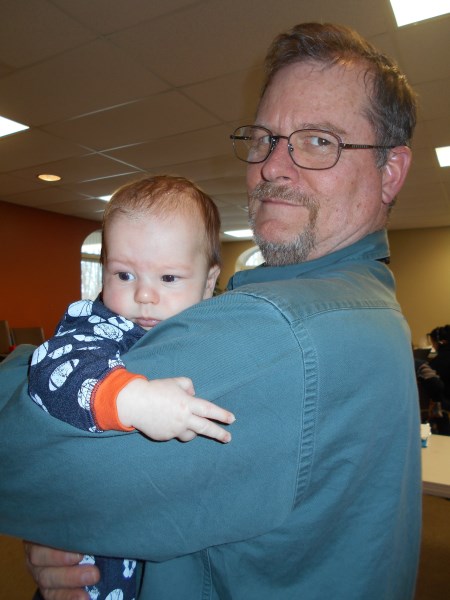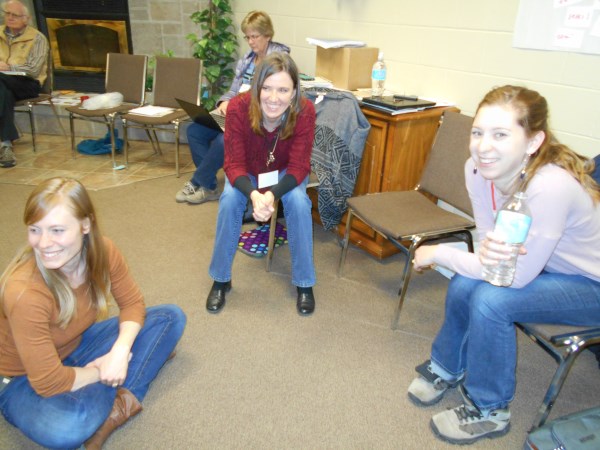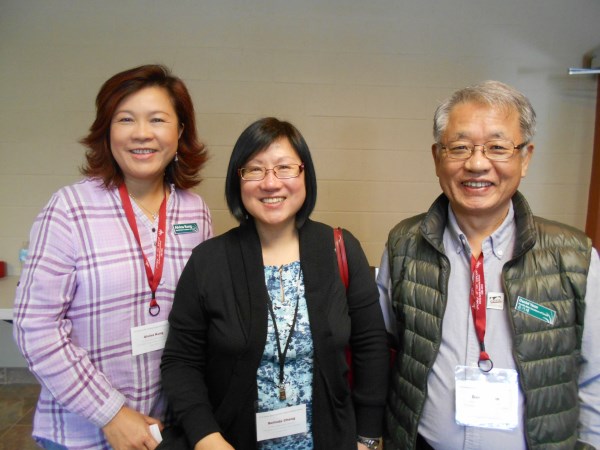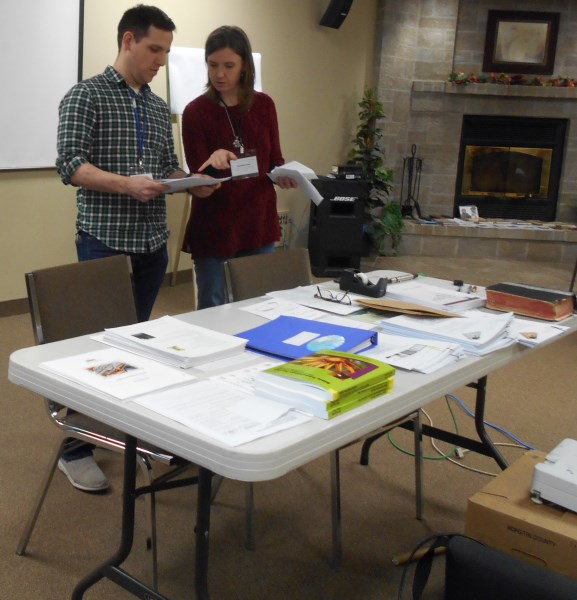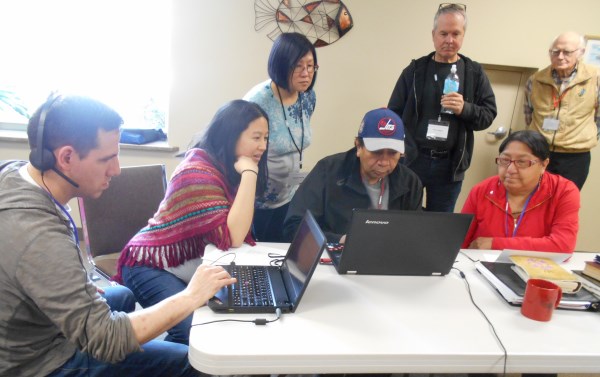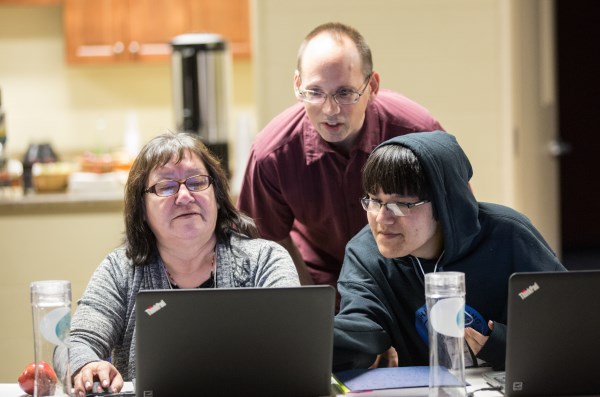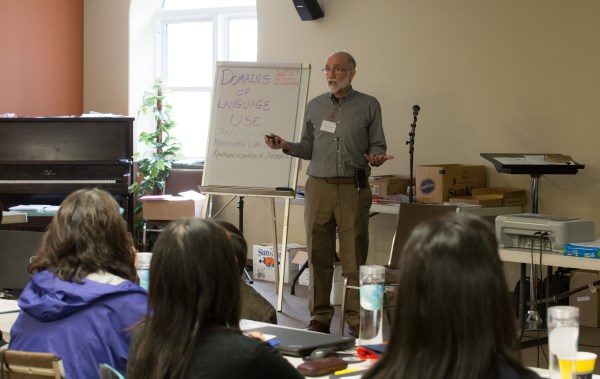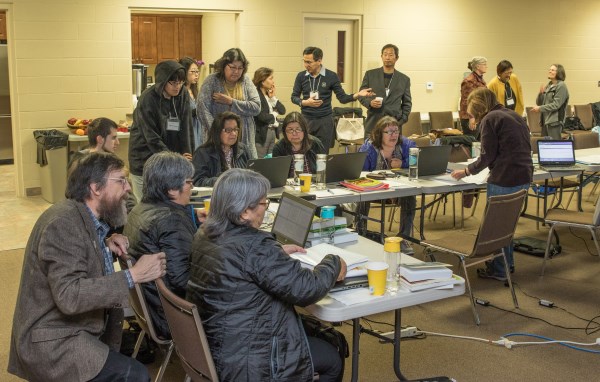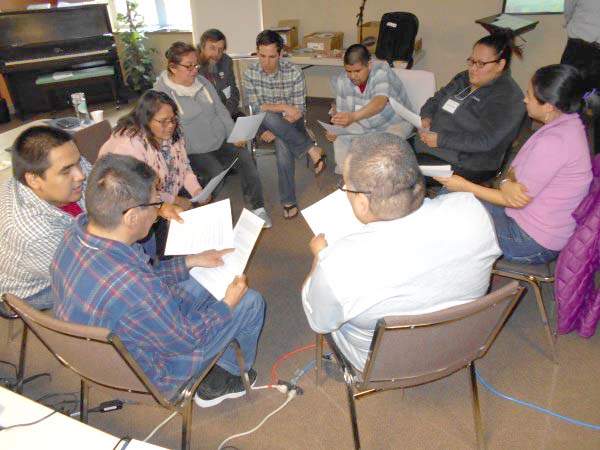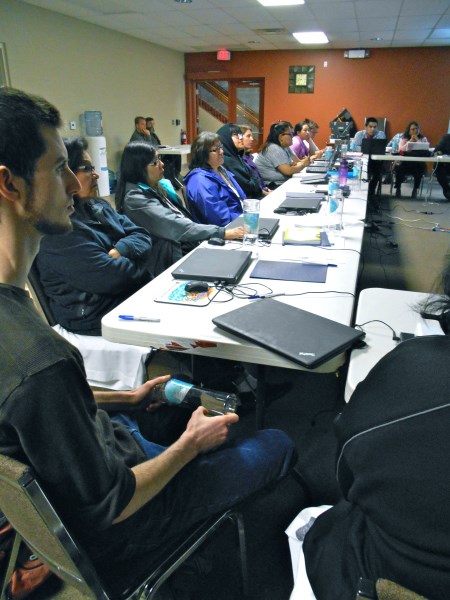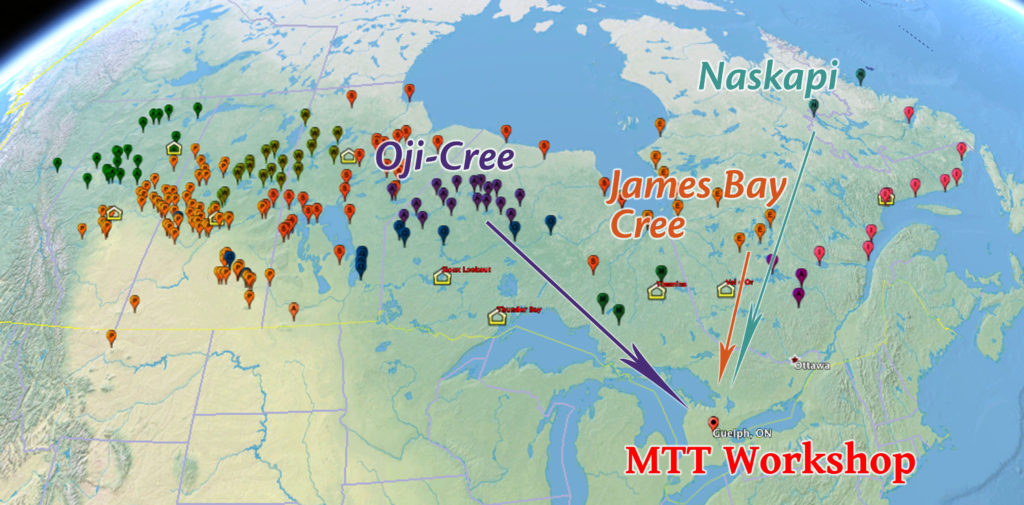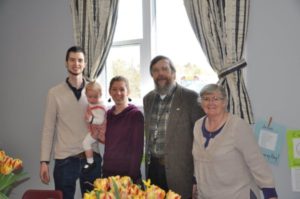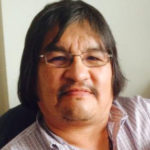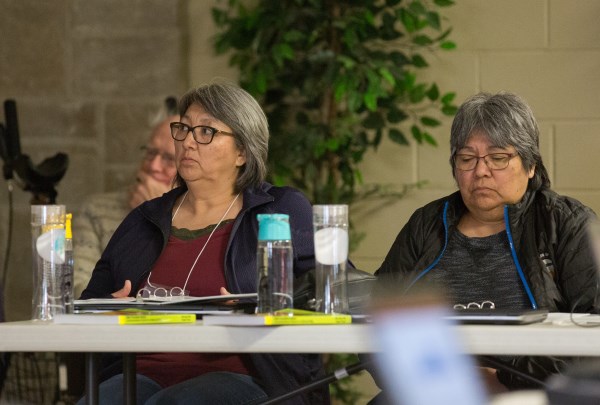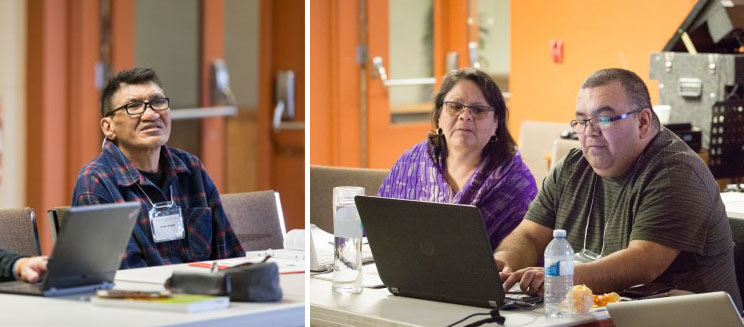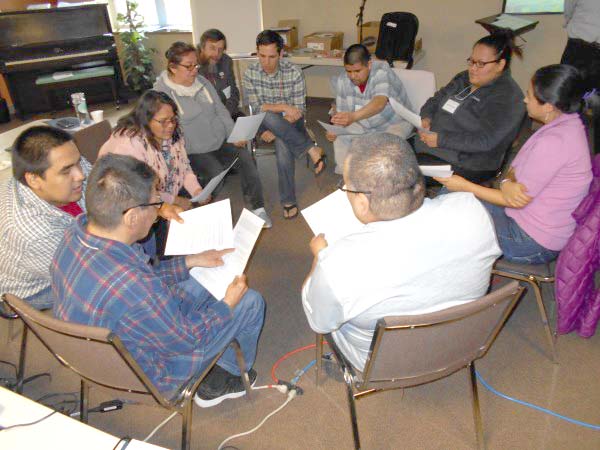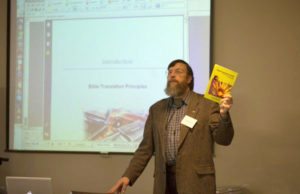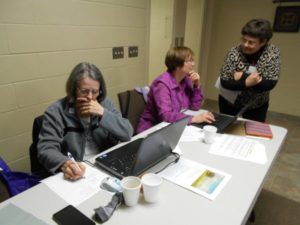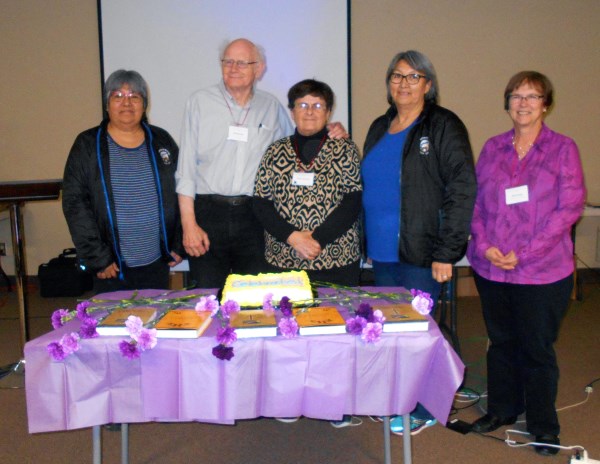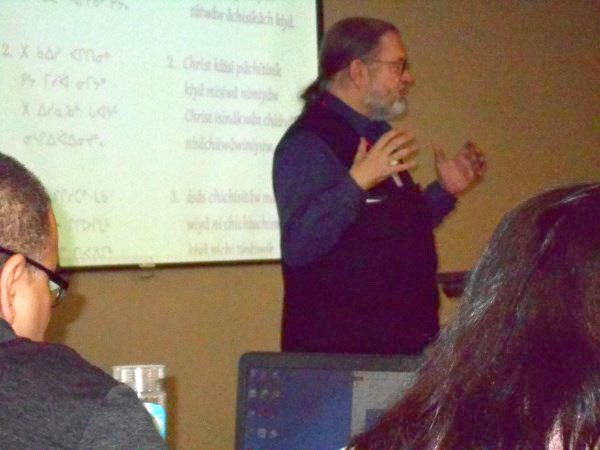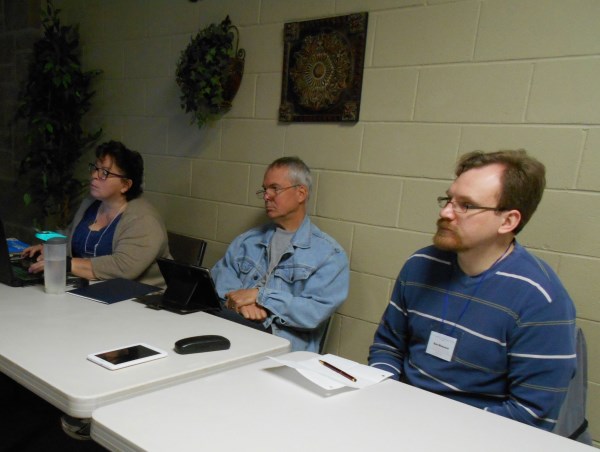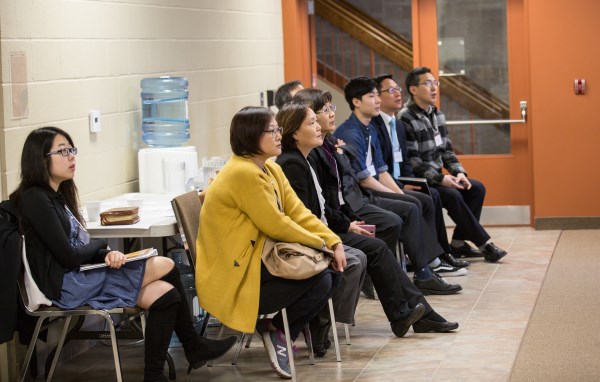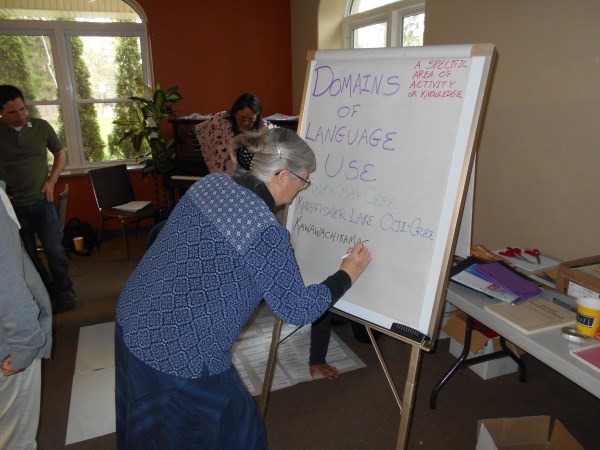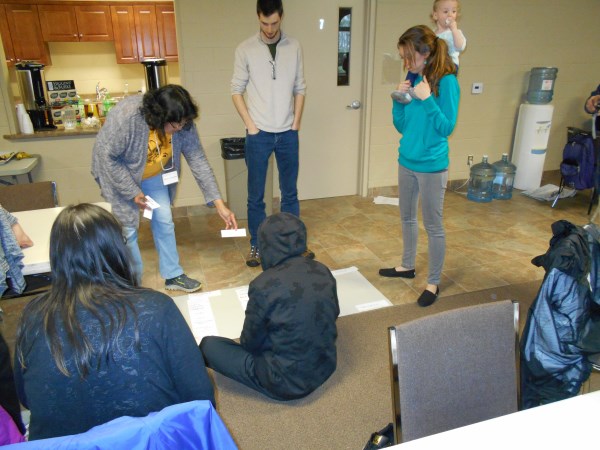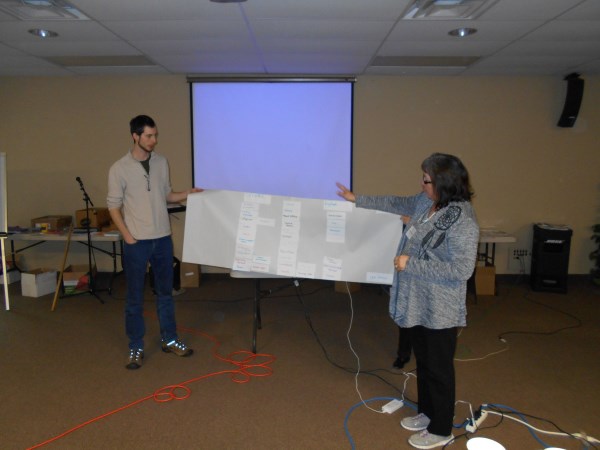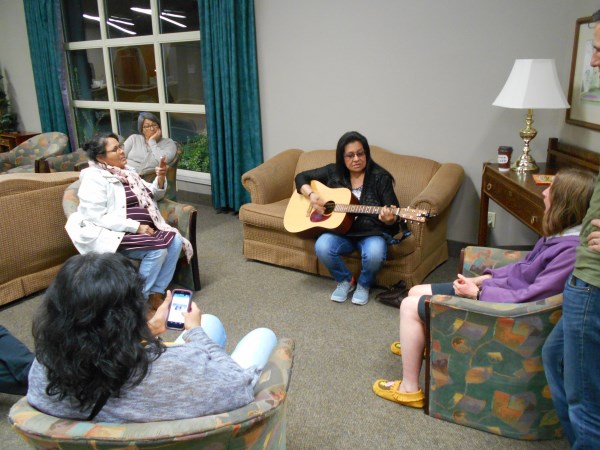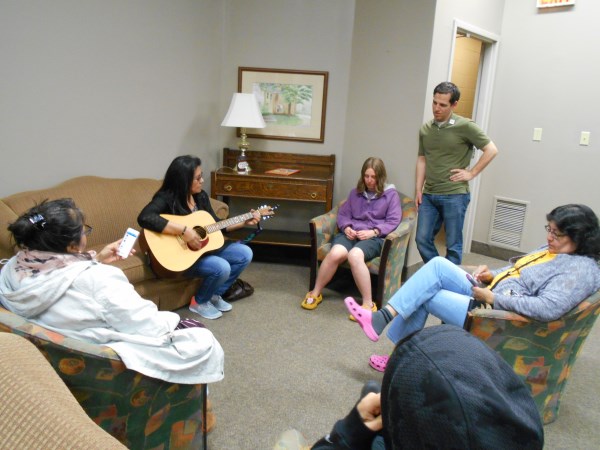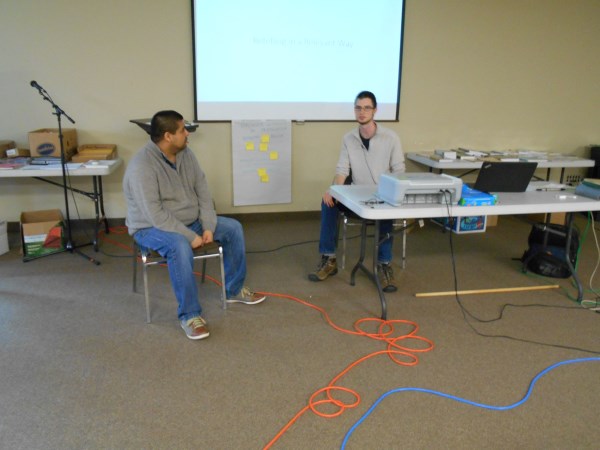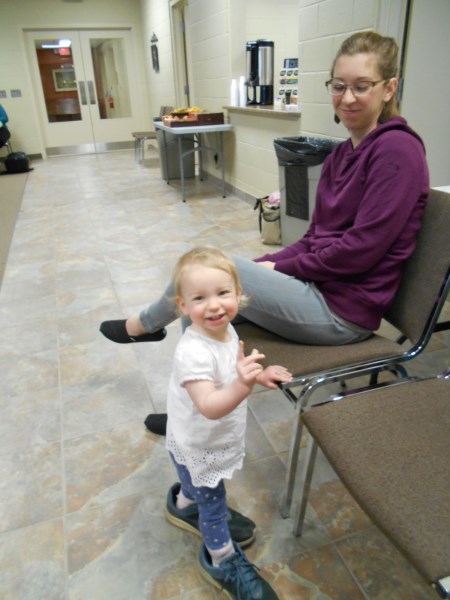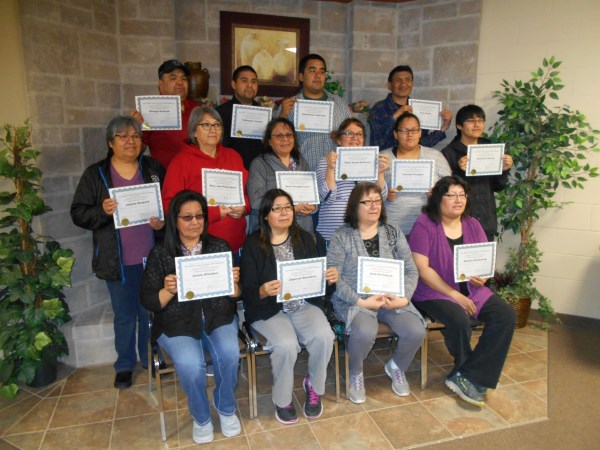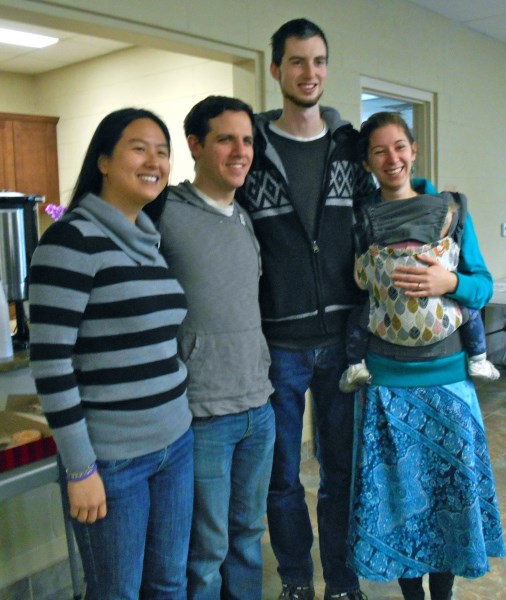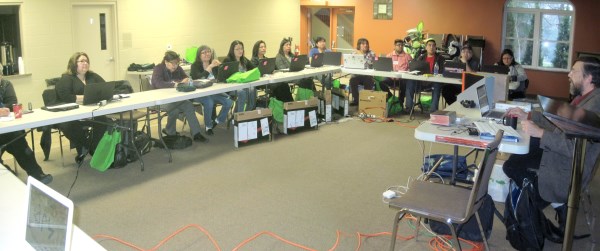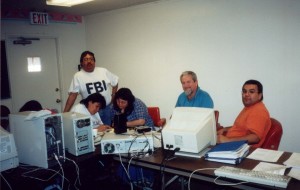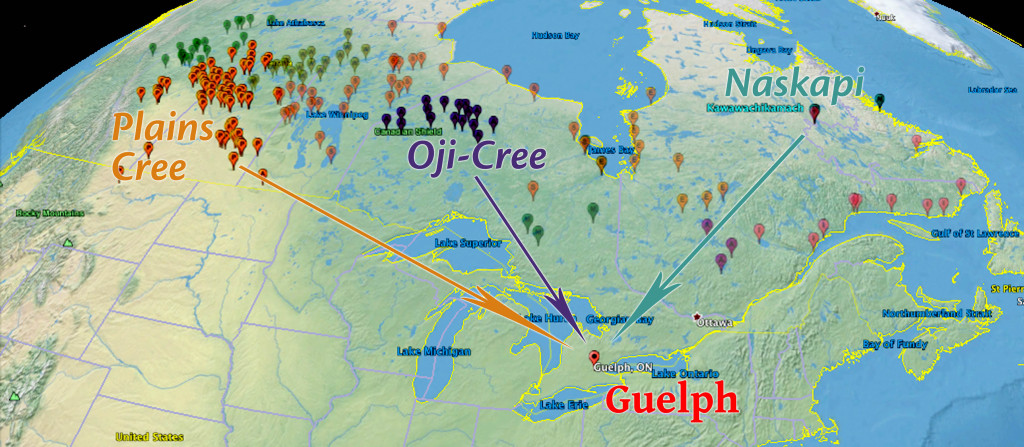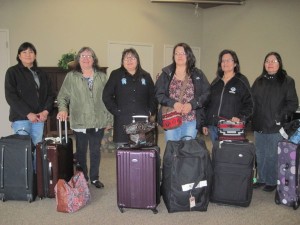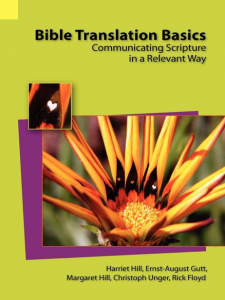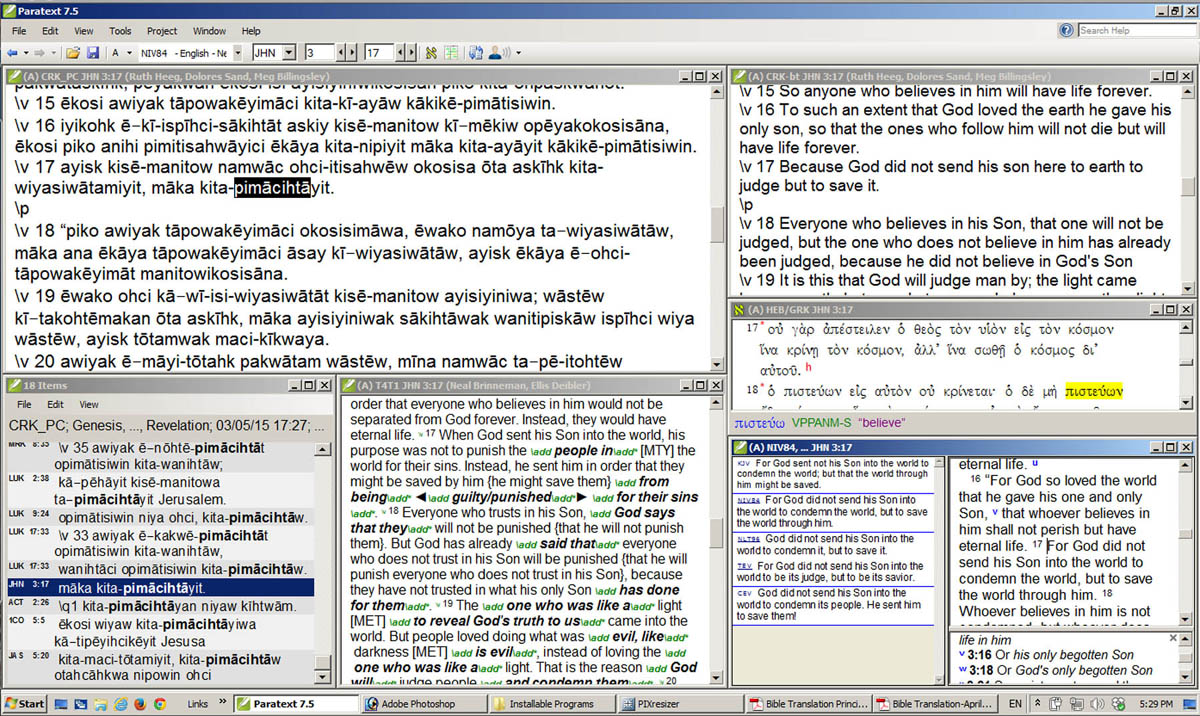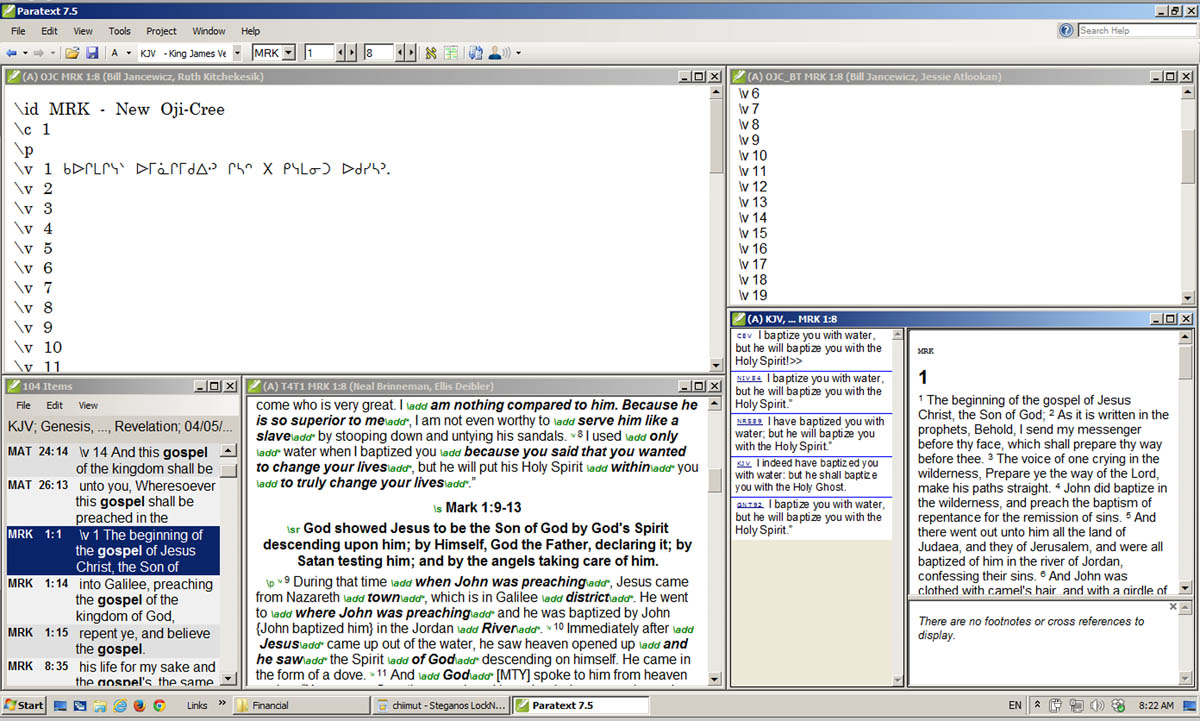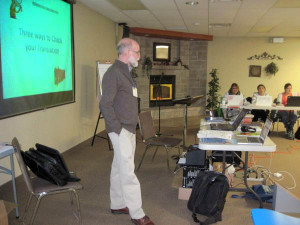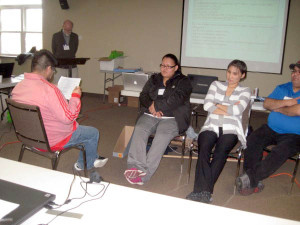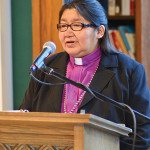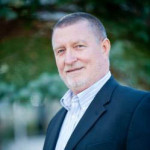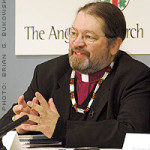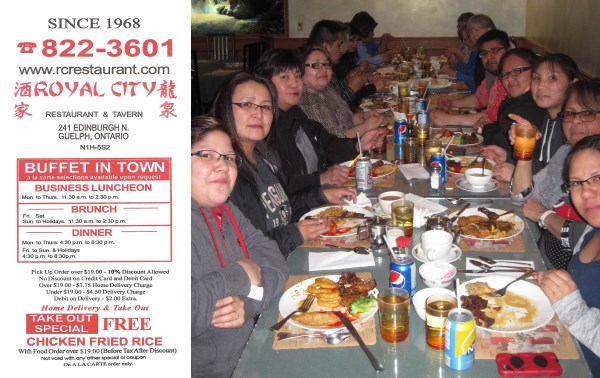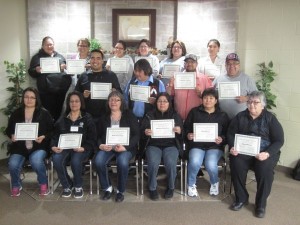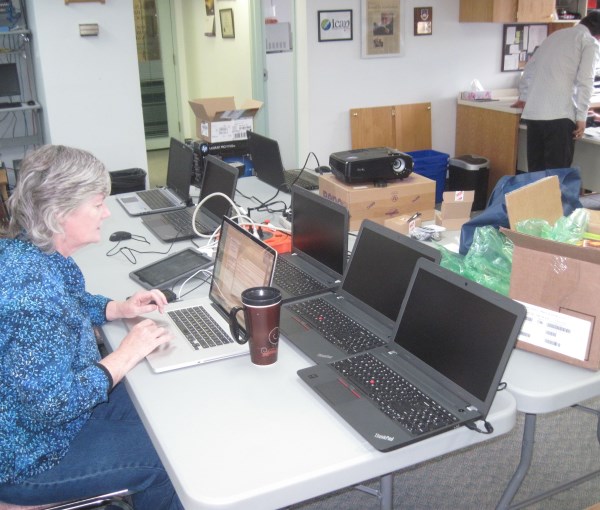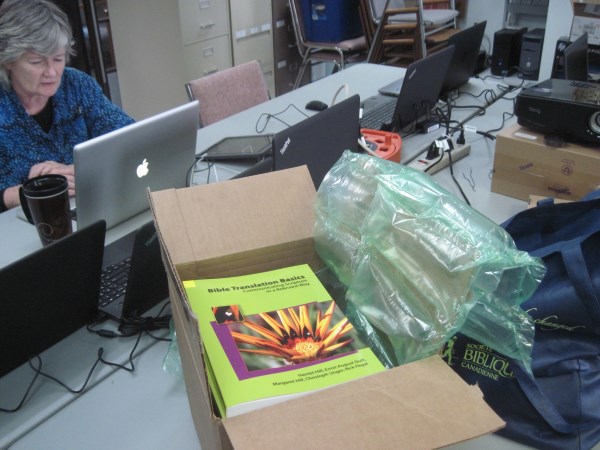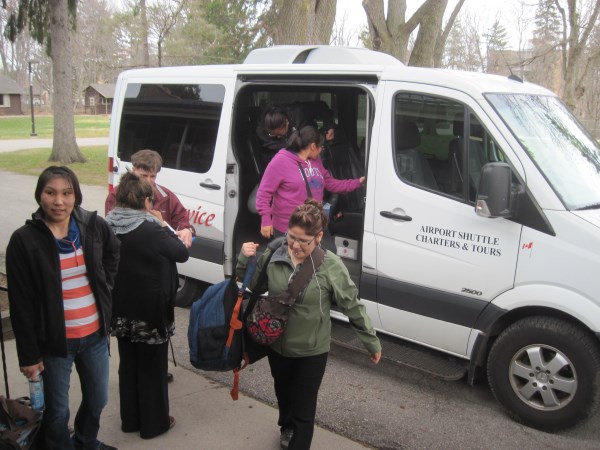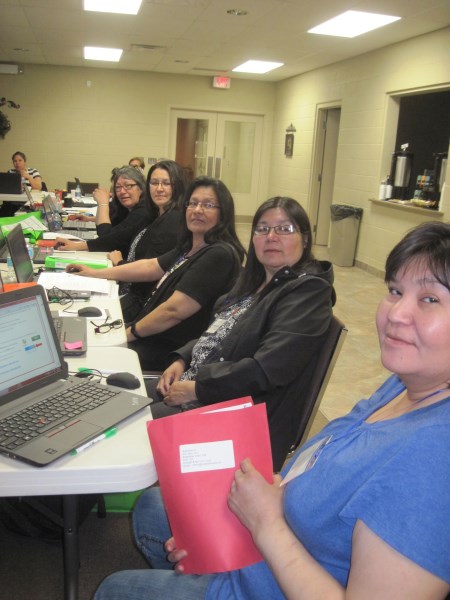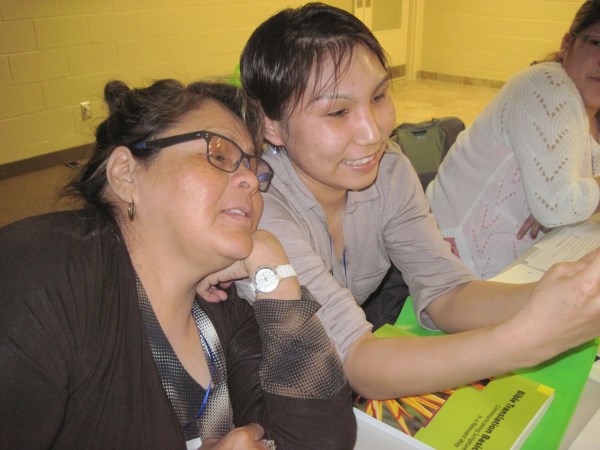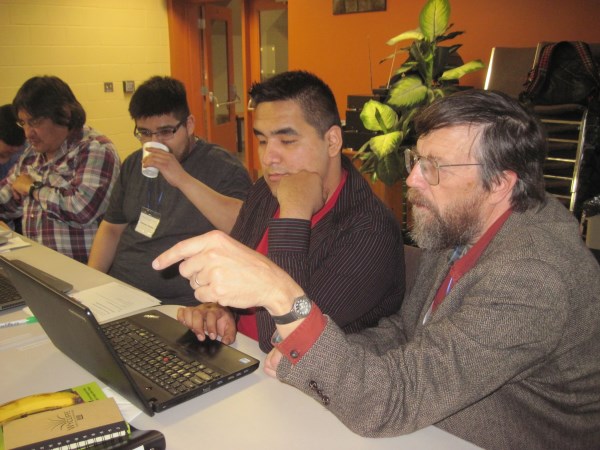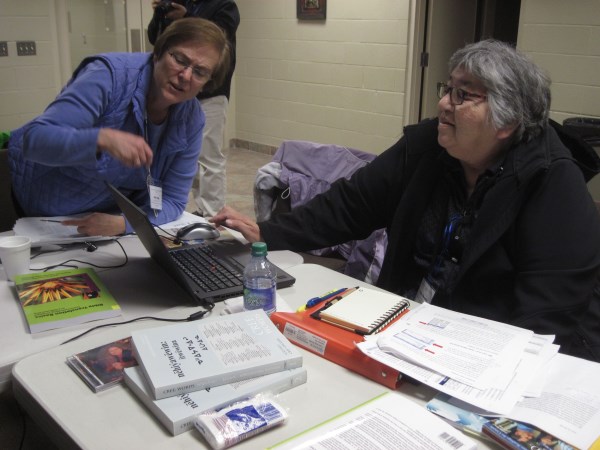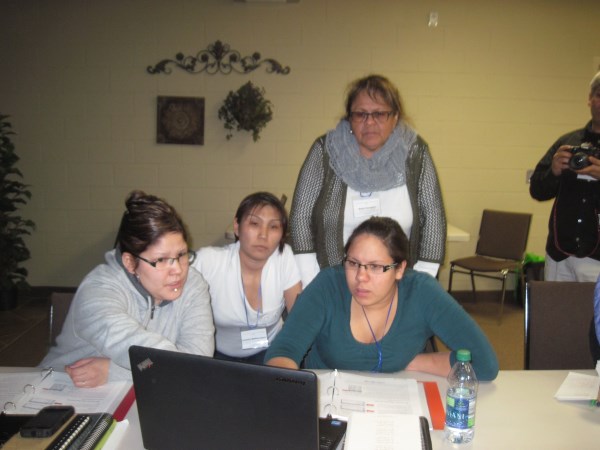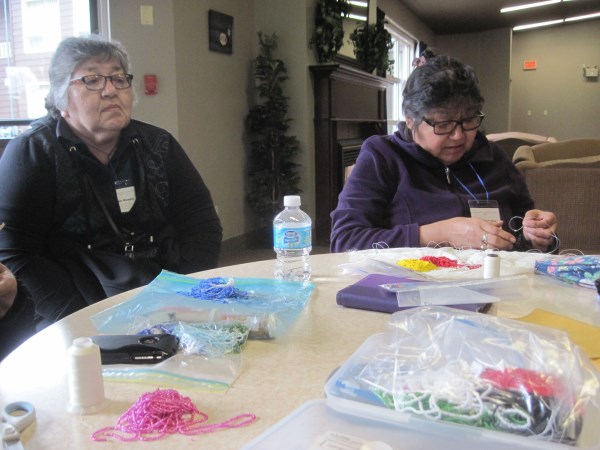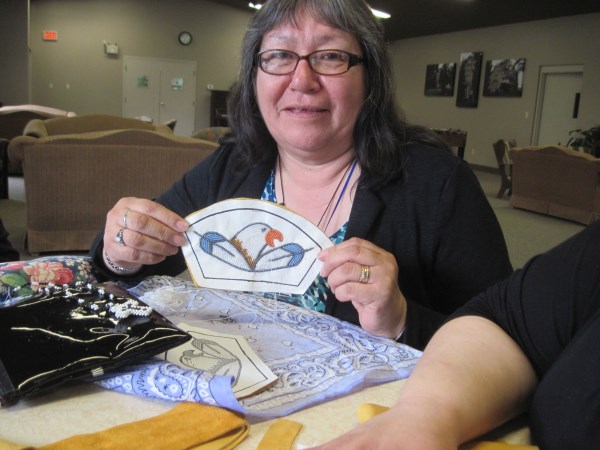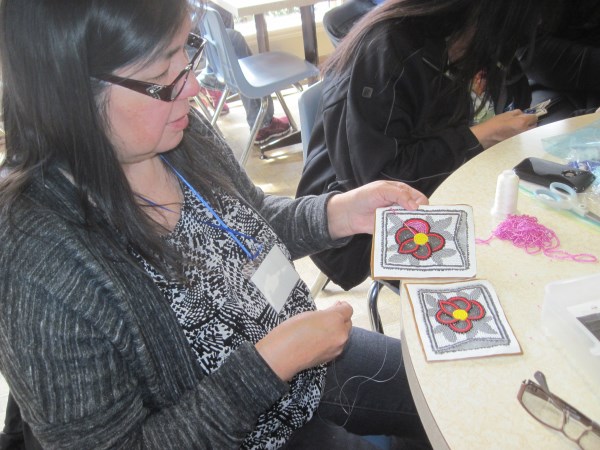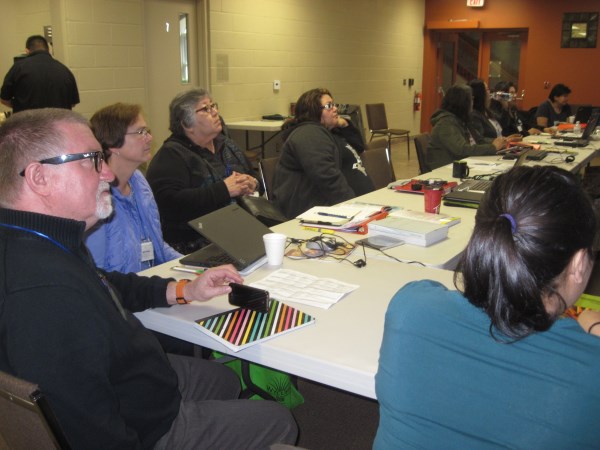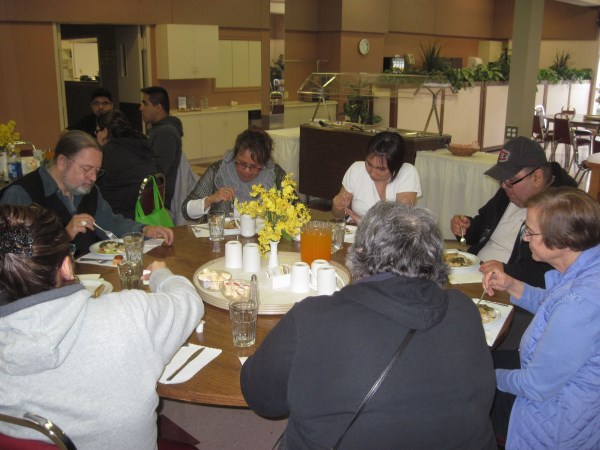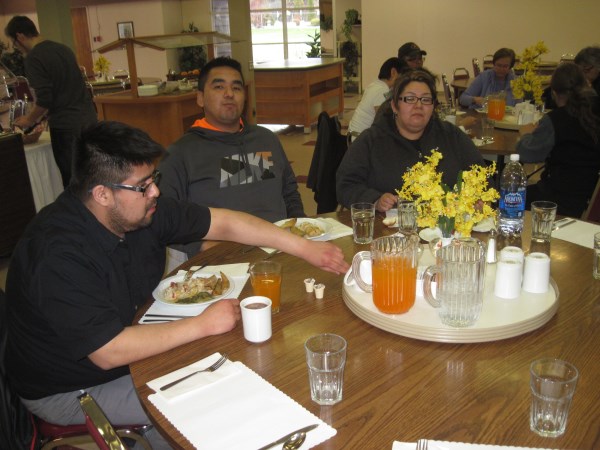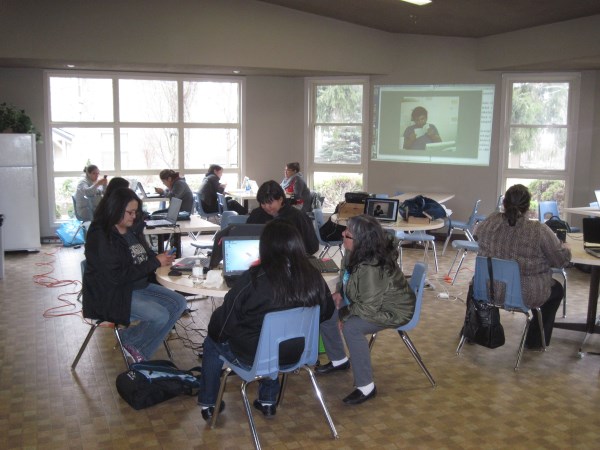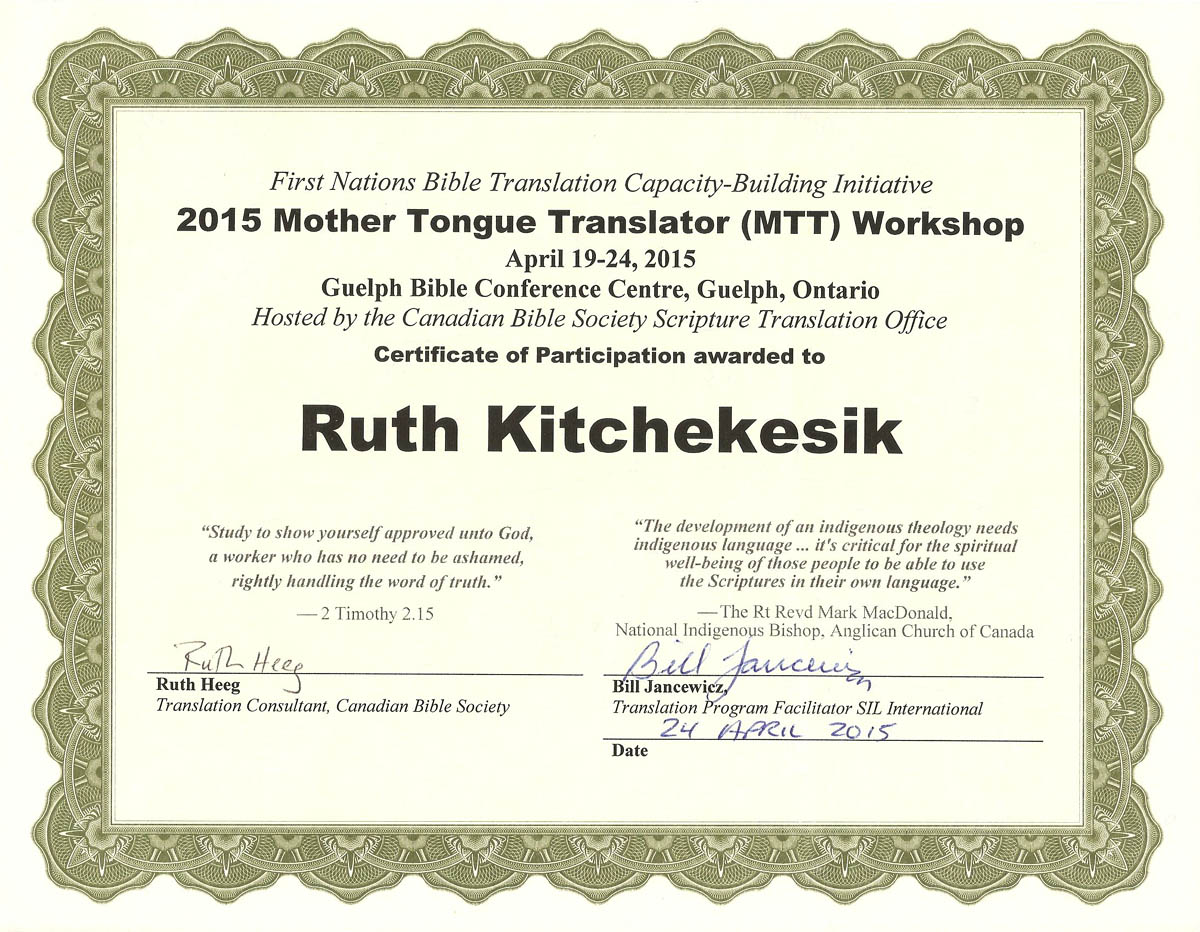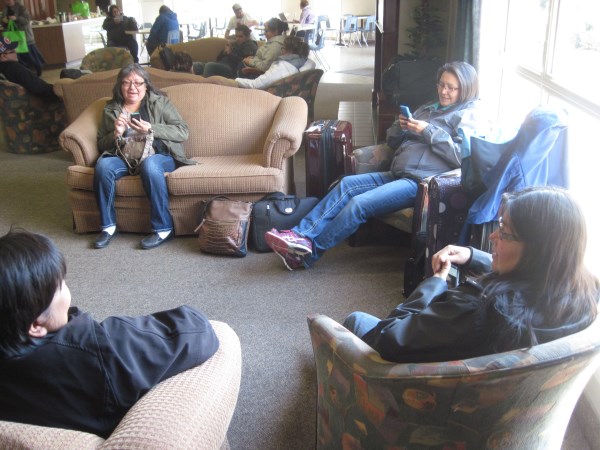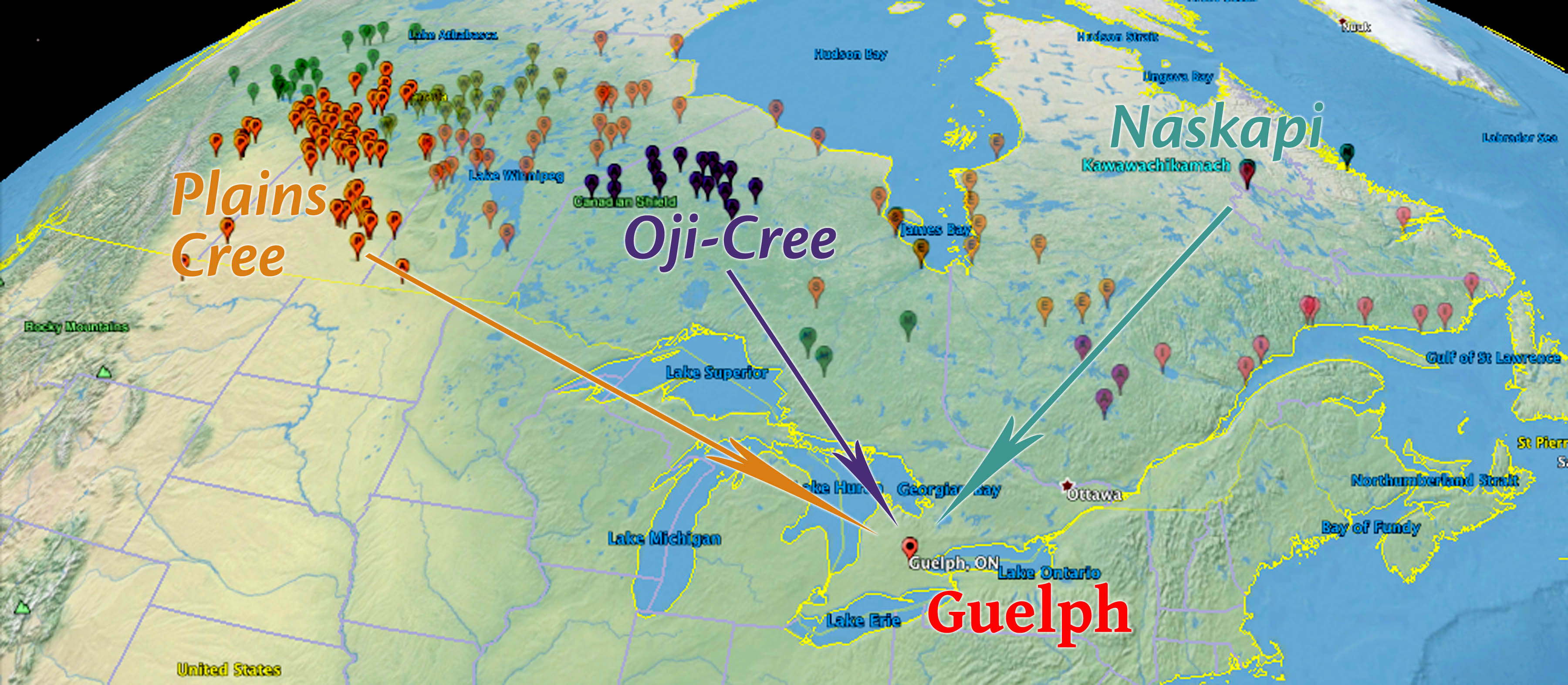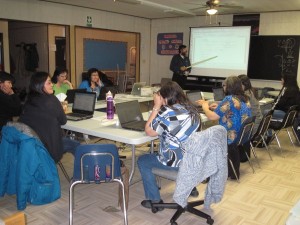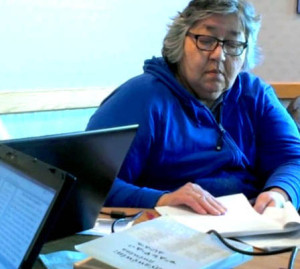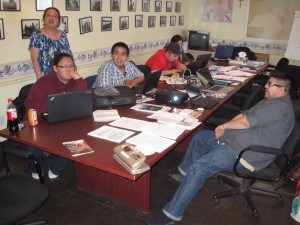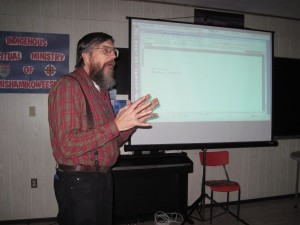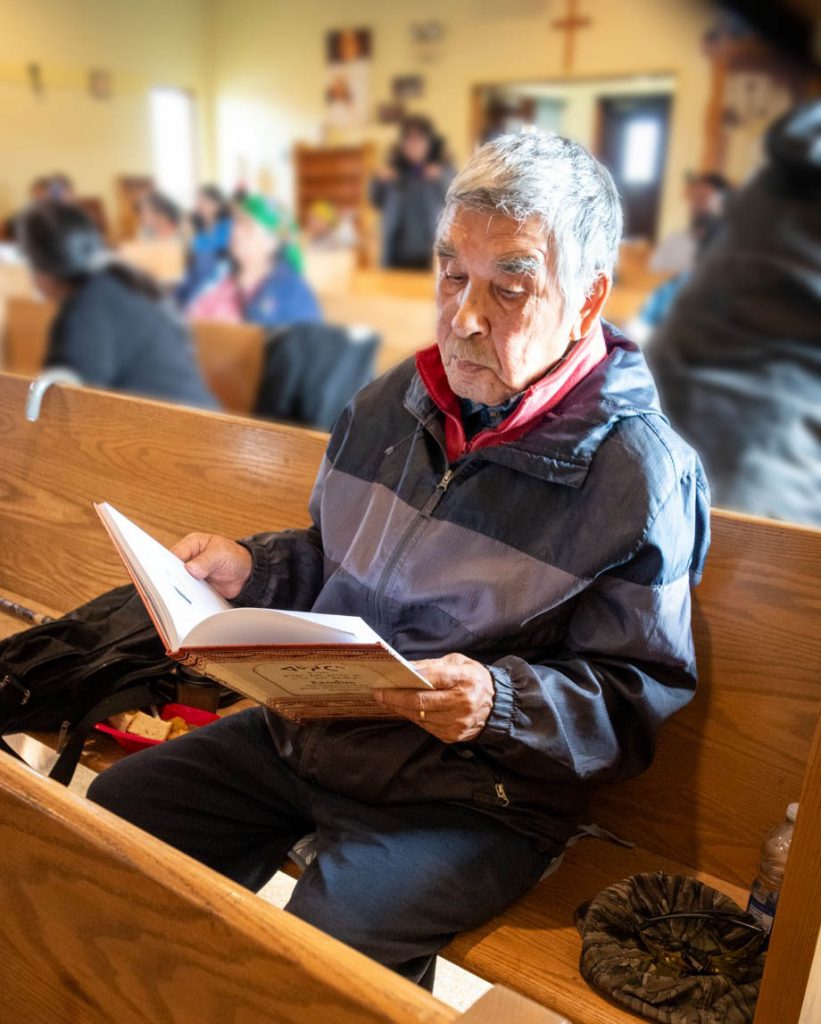 Our Dear Partners,
Our Dear Partners,
The book of Exodus in the Naskapi language was launched and dedicated to the glory of God in the community of Kawawachikamach in northern Quebec on Sunday, September 24, 2023 in the morning church service at St. John’s Church.
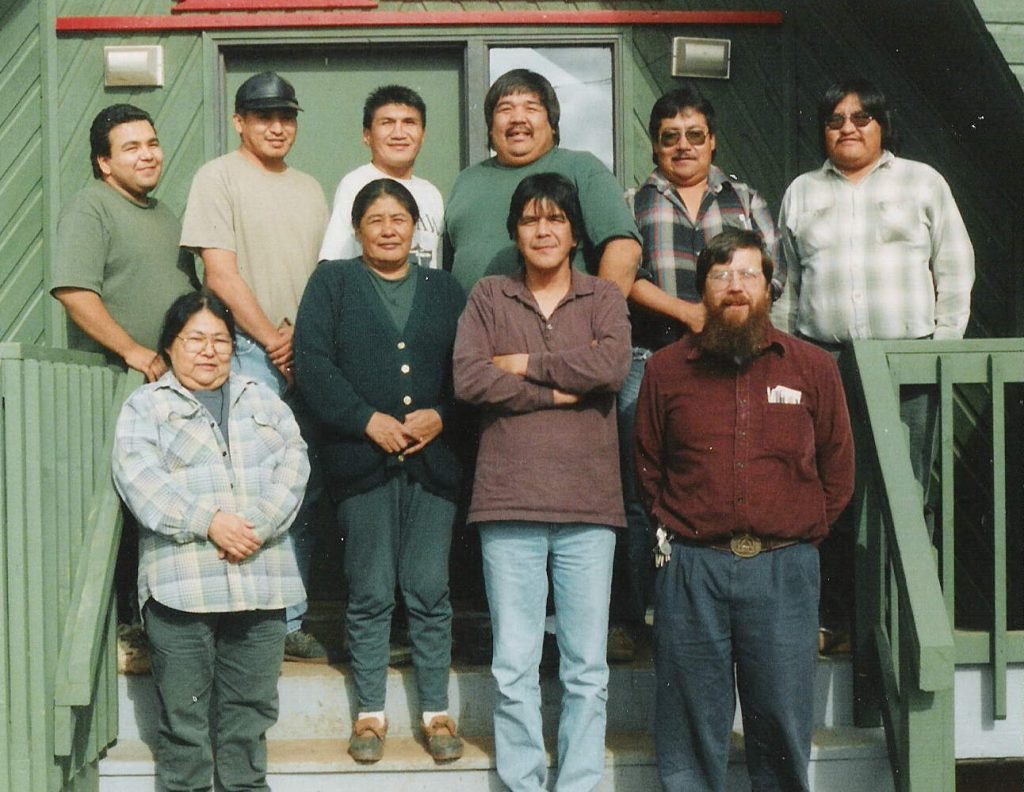
Naskapi Translation Committee–1996
(Back Row) George Guanish, Peter Einish, Isaac Einish, Jimmy-James Einish,
Philip Einish, Silas Nabinicaboo.
(Front Row) Alma Chemagansh, Mary Mokoush, Sampson Einish, Bill Jancewicz
Story of the Naskapi Exodus Translation Project
After beginning with a new Naskapi translation of stories of the Life of Jesus in the early 1990s, training was provided to several Naskapi persons interested in Bible Translation and Naskapi language development. Peter Einish was one of the young Naskapi men who received this training at this time. He was encouraged by the local Anglican rector, Father David Phillips, who was serving in the Naskapi community. As a team, Father David worked with Peter to help him to begin translating the book of Exodus in 1997. His colleague Silas was already working with Bill on the book of Genesis by this time.
Peter and Father David were able to complete the first half of the book of Exodus by the time Father David transferred to another parish in 1999.
In the early 2000s, it was decided to shift translation priorities to work on the Sunday Lectionary Readings and the Naskapi New Testament. So the Old Testament projects of Genesis and Exodus were put on the shelf for about a decade, until the Naskapi New Testament was published and distributed in the community in September 2007.
After the New Testament was dedicated, we turned our attention back to the Old Testament books that were started in the 1990s. The translation and checking of the book of Genesis was completed in 2012, mainly by Naskapi translator Silas Nabinicaboo and elder Joseph Guanish.
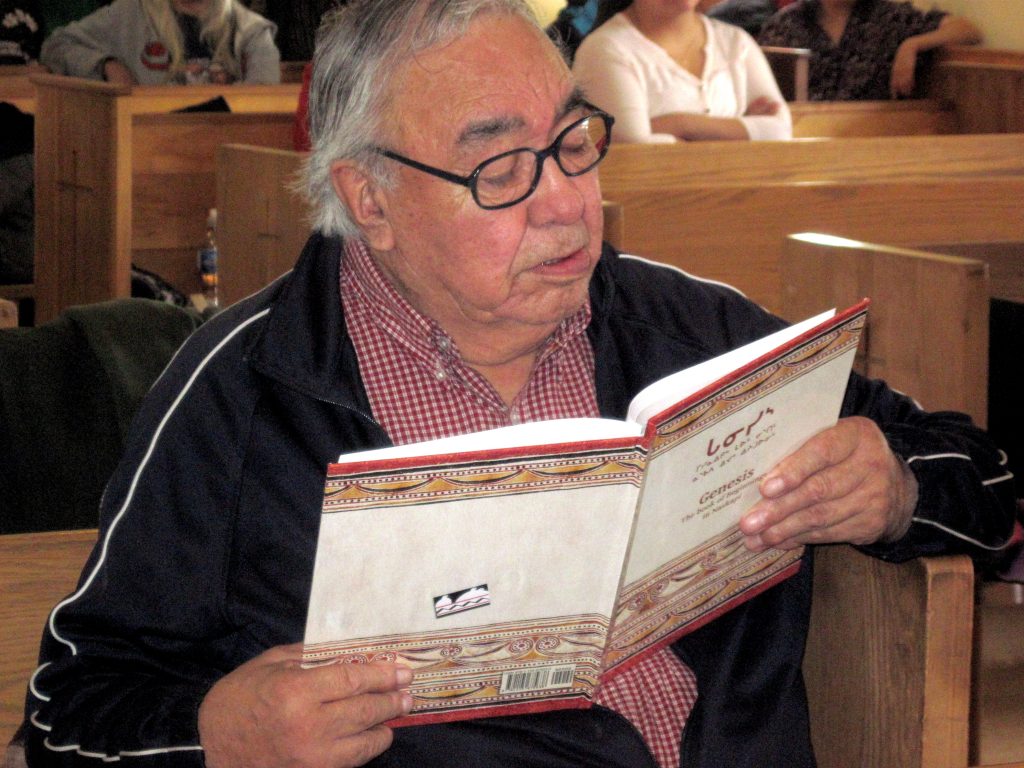
The late elder Joseph Guanish with his large-print copy of the book of Genesis at the dedication in 2013
While Genesis was being completed, it was decided to resume work on Exodus. In 2010, Tshiueten Vachon, a grandson of Joseph Guanish, began work revising what Peter had translated in the 1990s. Tshiueten was also enrolled in the Naskapi-McGill teacher training program, in which he received grammar-based Naskapi language training, and formed the core of a new generation of Naskapi translators.
Tshiueten completed the remaining half of the book of Exodus, and it was ready to be checked by a translation consultant in 2016. Our friend and co-worker Watson Williams, who had served the Naskapi team as translation consultant for the New Testament, returned to Kawawachikamach and worked with the translation team to ensure the textual accuracy of the translation.
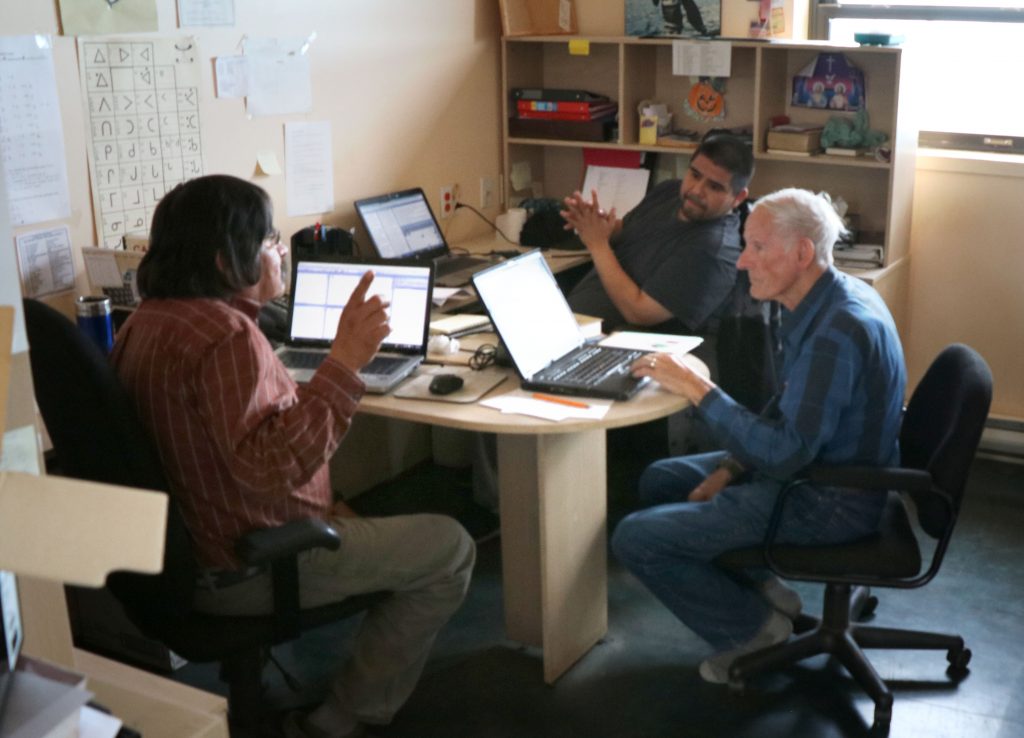
Silas, Tshiueten, and Watson working through the consultant-check of the book of Exodus at Kawawa in 2016
The translation of the Sunday Lectionary Bible readings was an important project during this period, and the readings each week included selections from the Psalms. Silas and Joe worked through this longest book in the Bible, using legacy translations from the Cree language prayer books as one of their primary source texts. When interns Alice and Martin Reed served in the Naskapi community prior to their first field assignment in Cree, they assisted the translation team in bringing the book of Psalms to completion.
As a result of the Exodus consultant check in 2016, there remained some additional things to do to make the translation more clear, accurate and natural. Silas stepped in to help with the revision of Exodus, doing two complete read-throughs of the whole book in 2018 and 2022. Then, checking copies of the book were reviewed by several elders, including Alma Sandy, Alma Chemaganish, and David and Susan Swappie. After their suggestions and corrections were made, the Canadian Bible Society was invited to publish the book for the Naskapi community. They completed the typesetting in early 2023.
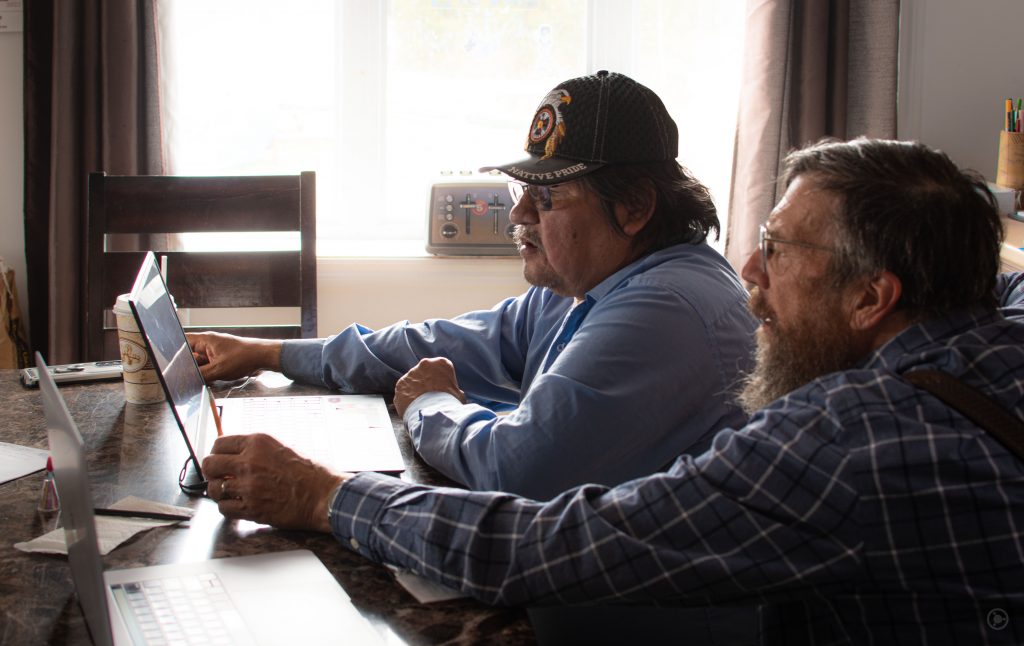
Meanwhile, Bill and Silas completed the sound recording and audio mastering for all forty chapters of the Exodus to accompany the printed text
When the Exodus books were ordered, printed, and delivered to Kawawa in July of 2023, the Naskapi Development Corporation and St. John’s Church in Kawawa began to make plans for a service of celebration and dedication in the community. The date agreed upon was Sunday, September 24, 2023. Our son Benjamin was also in the community at that time to do some graphic design and social media contract work for the Naskapi Nation. He attended the dedication services and took some beautiful pictures to share. Thank you for taking the time to scroll through them!
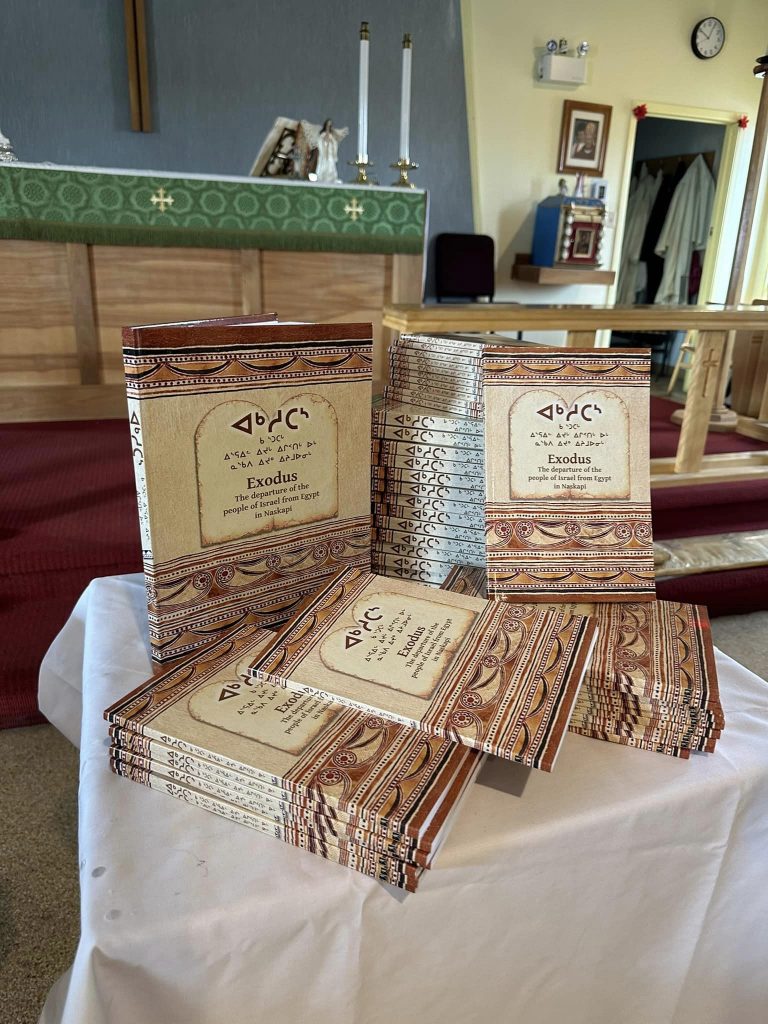
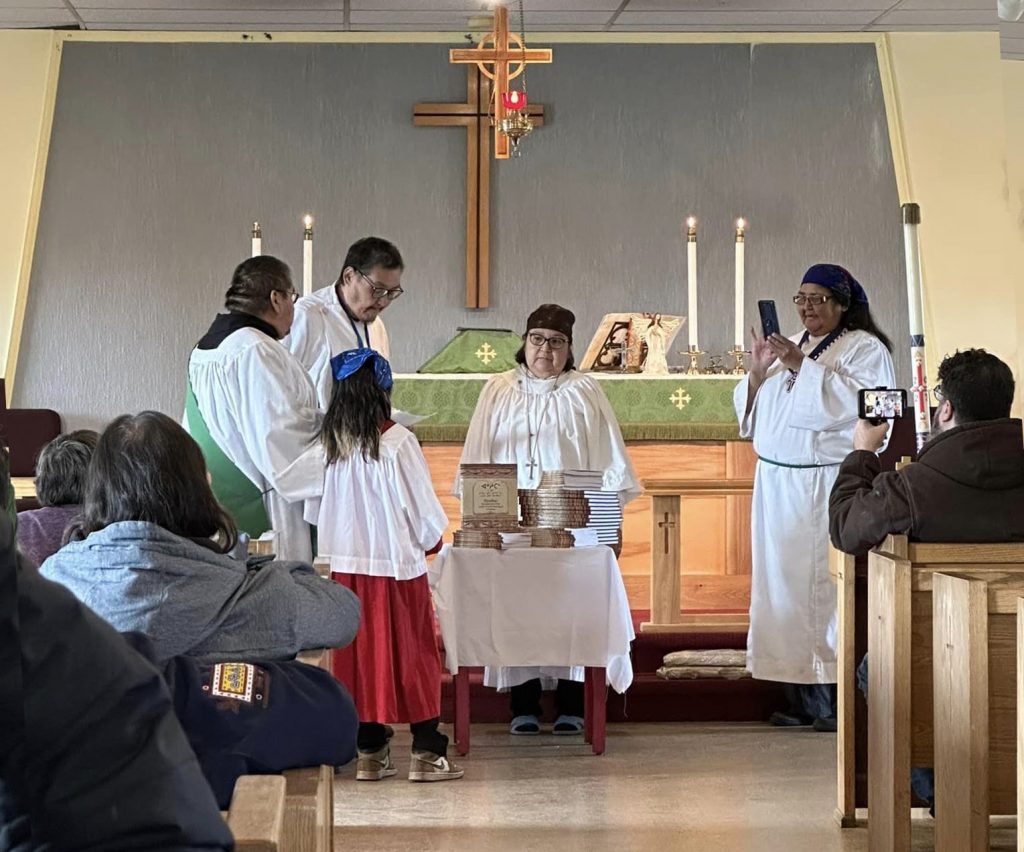
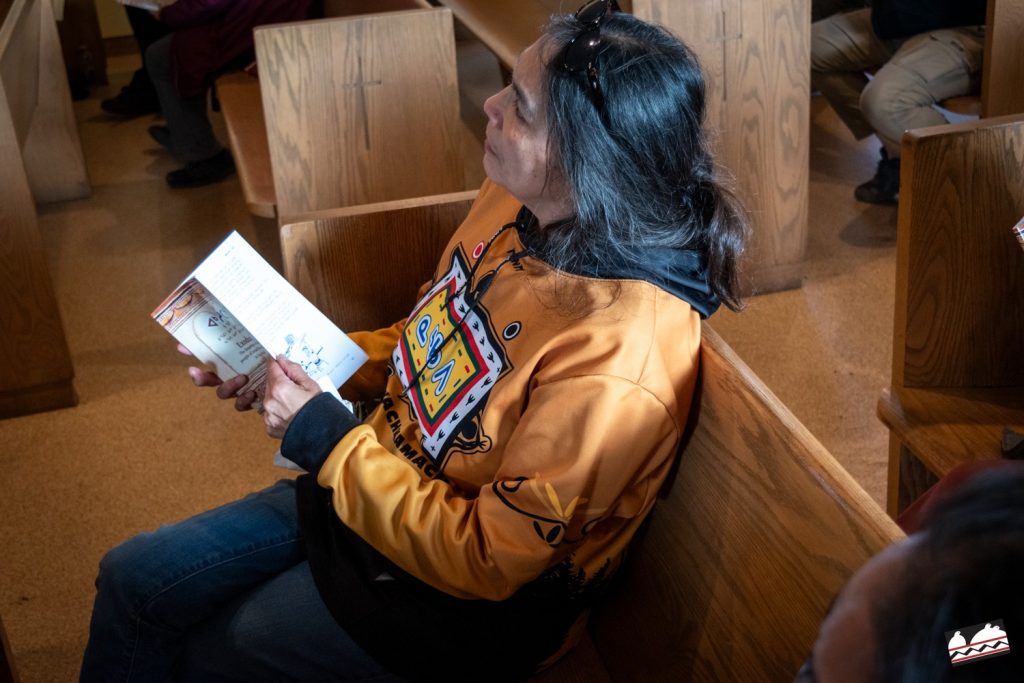
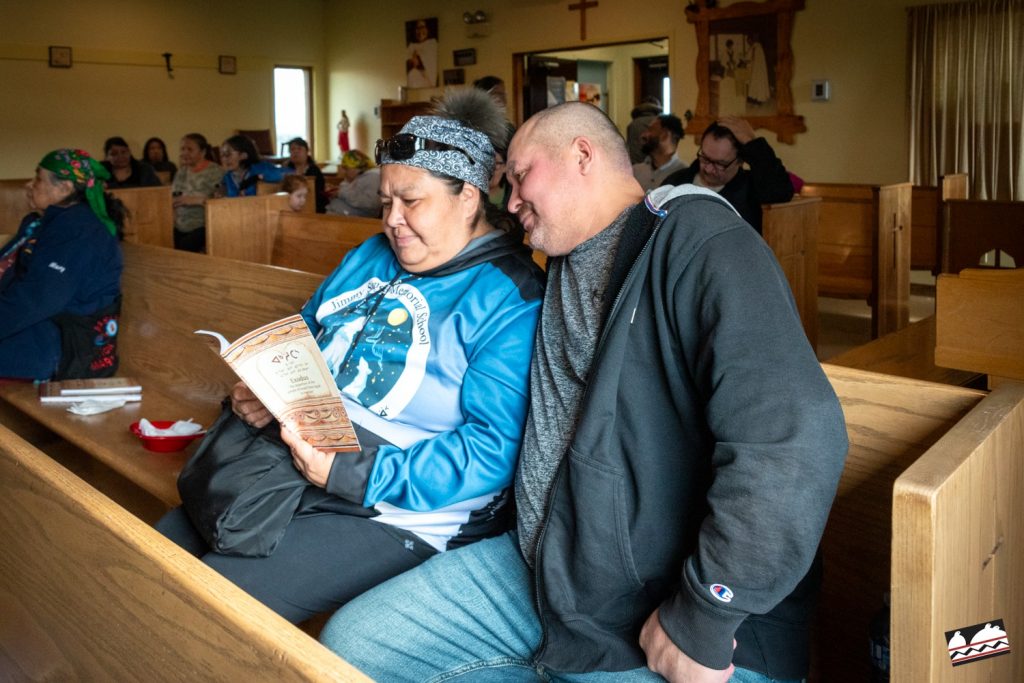
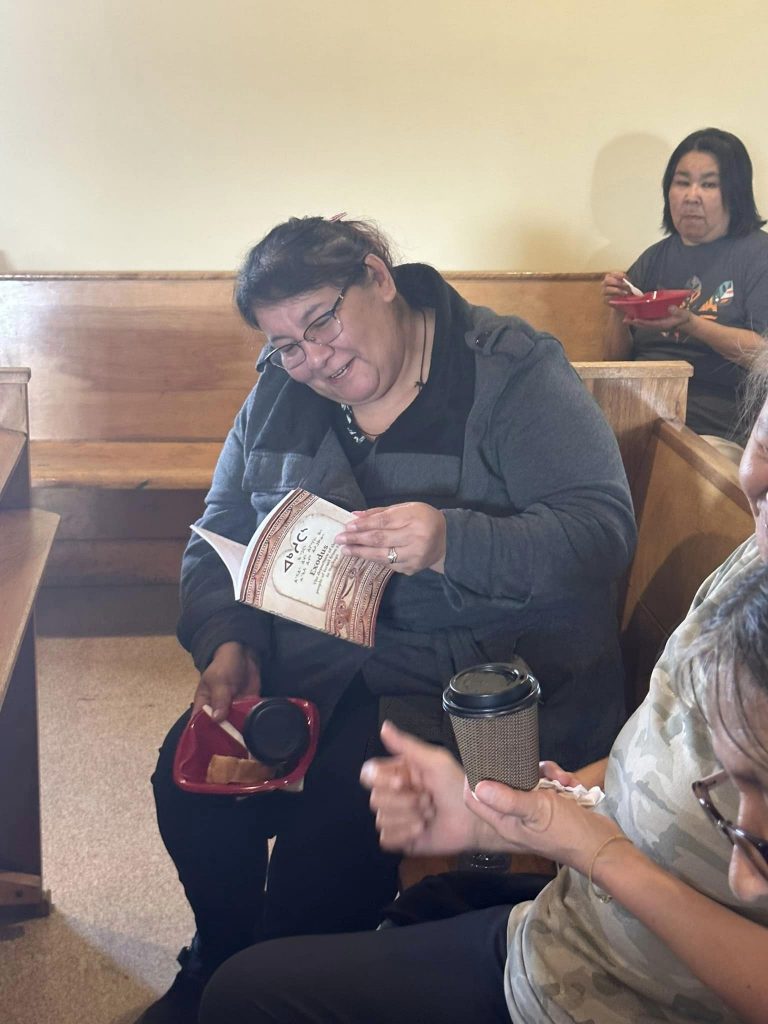
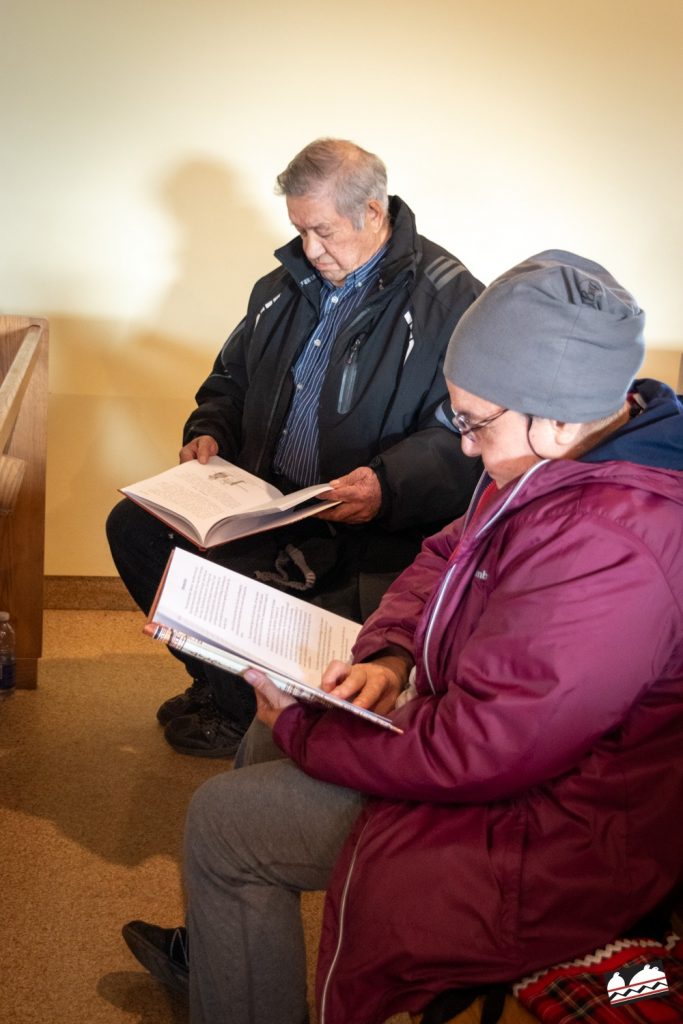
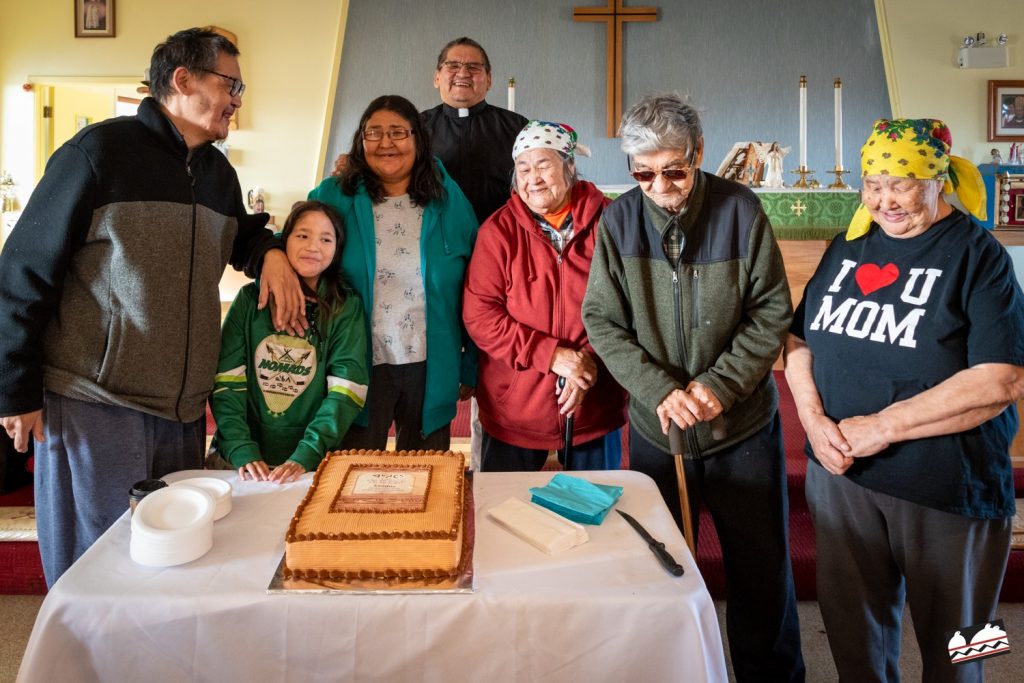
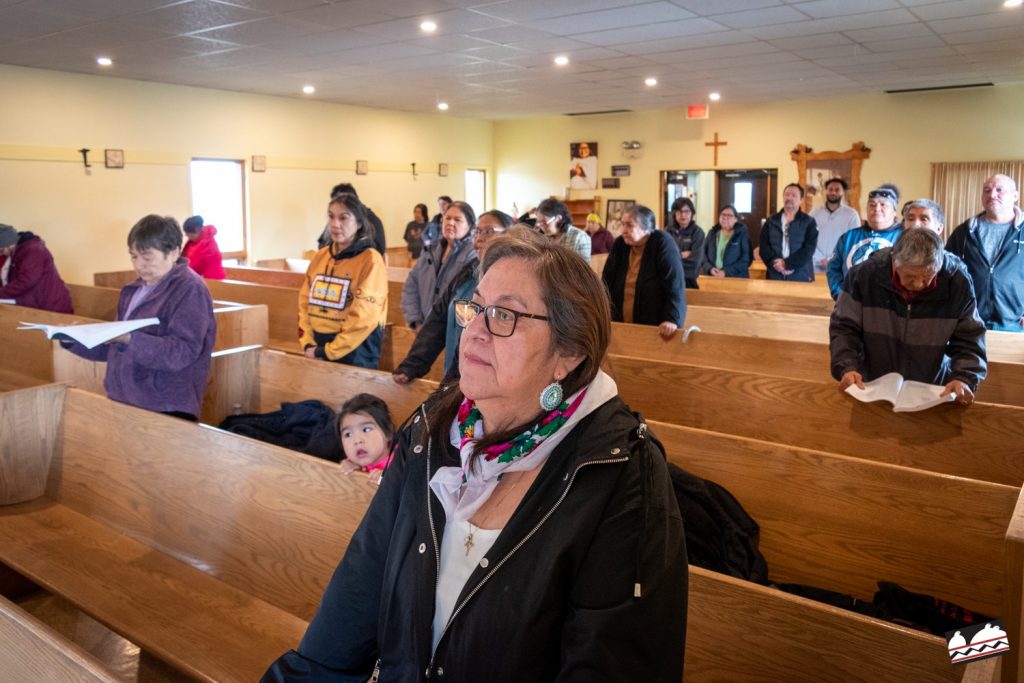 Besides the 6″ x 9″ paperback edition published by the Canadian Bible Society, the Naskapi Development Corporation also published hardcover presentation editions and large print format editions. All book formats and sizes are available to purchase on the internet as well as in-person at the Naskapi Development Corporation offices in Kawawachikamach.
Besides the 6″ x 9″ paperback edition published by the Canadian Bible Society, the Naskapi Development Corporation also published hardcover presentation editions and large print format editions. All book formats and sizes are available to purchase on the internet as well as in-person at the Naskapi Development Corporation offices in Kawawachikamach.
With the publication and dedication of the book of Exodus in Naskapi, this makes four publications available in the hands and hearts of the Naskapi people: The New Testament, Genesis, Psalms, and now, Exodus.
The Naskapi team continues to make steady progress on these other Old Testament books: Judges, Deuteronomy, Joshua, Esther, Ruth, Jonah, Job, Daniel, First & Second Samuel, First & Second Kings.
Besides the availability of the print edition, an audio version of the entire book of Exodus is now being played regularly on Naskapi Radio, and is also available for public download for personal listening as a podcast. In addition, it is available for streaming on Bible reading apps and websites such as YouVersion and Scripture Earth.
https://www.bible.com/bible/2496/EXO.20 (YouVersion read and listen online)
https://scriptureearth.org/data/nsk/sab/nsk/nsk-03-EXO-001.html (Scripture Earth read and listen online)
Join us in praise and prayers:
- For the successful completion, publication and dedication service of the Book of Exodus in Naskapi.
- For the years of faithful work by so many members of the Naskapi translation team that brought this about.
- Pray for our ongoing work with the Naskapi team as they continue their work on the subsequent Naskapi Old Testament translation projects
- Pray for us as we continue our way through the rest of audio for the Book of Psalms in Naskapi.
And remember to pray with us for the upcoming First Nations Bible Translator Workshop that we are helping to coordinate, in Guelph Ontario, November 5-10, 2023. Pray that the participants (including the Naskapi team) will be able to come, that the workshop staff and guests will be able to help them with their confidence and capacity to translate the Word of God into their own language.
Serving with you,
Bill & Norma Jean Jancewicz

